Members of the Order of British Columbia: M–O
I–L < Previous
Next > P–S
Browse honourees by last name, letters M through O. Search for a name using 'Ctrl+F' to jump to a specific recipient. Bios reflect achievements at time of appointment.
An asterisk (*) indicates that the recipient is deceased.
M
Anne E. Macdonald *
Anne Macdonald contributed to a wide range of community endeavours. Her career of public service epitomized the important role of the community volunteer and the difference a dedicated and determined individual can make.
Mrs. Macdonald's accomplishments include the establishment of Presentation House Arts Centre in North Vancouver, one of the finest community arts centres in the Province. She was also responsible for the preservation of St. John's Church and giving it new life as a recital hall appropriately called Anne Macdonald Hall.
Anne Macdonald was an innovator. She founded the North Vancouver Arts Council and the British Columbia Arts and Crafts Fair.
As the first Executive Director of the Vancouver Community Arts Council she took a leadership role in a number of significant initiatives including the establishment of the Assembly of British Columbia Arts councils.
She also made a great contribution through membership in a wide range of boards and commissions ranging from the Senate of the University of British Columbia to trusteeship in the North Vancouver School District to the Board of Governors of the Canadian Conference of the Arts.
As an innovator and committed volunteer, Anne Macdonald served North Vancouver and the arts community of the Province exceedingly well indeed.
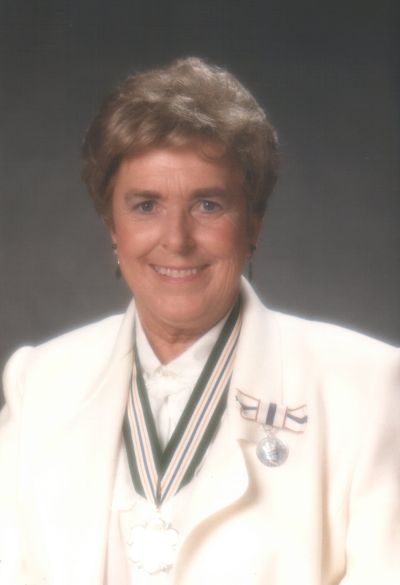
- Year: 1990
- City: Vancouver
- Region: Mainland/Southwest
- Category: Arts and Culture
Irene Margaret MacDonald *
Irene MacDonald excelled as an athlete, coach and sports communicator. She was Canadian diving champion from 1951 to 1961. During that time, she won Canadian national honours 15 times, U.S. national titles six times, Mexican national titles twice, and medals in the Commonwealth Games in 1954 (bronze) and 1958 (silver), and in the Olympics in 1956 (bronze).
When she retired from active competition, she began coaching and created a legacy of friends, admirers, athletes, and international colleagues. She is a member of the B.C. Sports Hall of Fame, the Canadian Sports Hall of Fame, and the Canadian Olympic Hall of Fame.
Irene MacDonald distinguished herself for her skill, her knowledge and her vitality. She brought this province and this country great honour and inspired and trained many others to take their place on the world stage. She gave her best to young people and planted the seeds of greatness in many of them.
“I feel happy when I'm working with young children,” she has said of her coaching career. For some 30 years, her athletes took medals at many international competitions. During those years, she was far more than simply a paid coach. Many times, at her own expense, she made it possible for divers to take part in competitions.
Her enthusiastic, insightful commentary informed CBC television audiences and raised the profile of diving. She retired in 1991 as technical director for diving in the province. She continued to volunteer her time and energy to diving.
Her dedication to sport and to young people was unselfish and unwavering. Its legacy was outstanding divers and outstanding citizens.
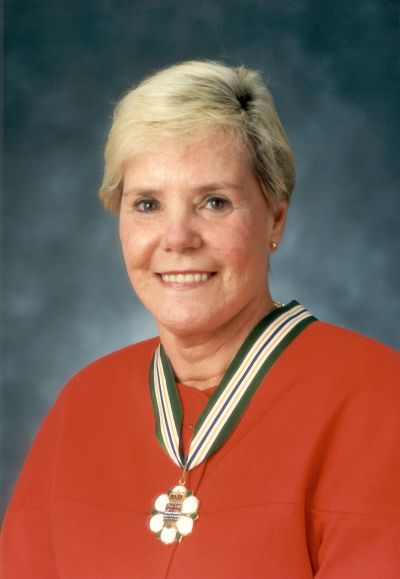
- Year: 1991
- City: Vancouver
- Region: Mainland/Southwest
- Category: Sports and Recreation
Gordon F. MacFarlane *
A former exceptional leader in business and the community, Gordon MacFarlane guided the transformation of the province's major telecommunications utility into one of the most attractive places in Canada to work and invest, no small accomplishment in an extremely complex industry. In the process, B.C. Tel has become an acknowledged leader in telecommunications technology.
Its ground-breaking innovations, not only in telecommunications but employee relations, are a beacon for other British Columbia enterprises. As you might expect, Gordon MacFarlane's contributions extended well beyond the corporate: he was a member of the Premier's Economic Advisory Council, the Business Council on National Issues and the board of Simon Fraser University. He was involved in fund-raising for the United Way, the Cancer Control Agency, the Canadian Council of Christians and Jews, Science World and the Vancouver Public Aquarium.
Mr. MacFarlane's community-minded dedication was also reflected in B.C. Tel's many community activities, from its founding donation to Science World British Columbia and its close working relationship with the Ministry of Education to the company's sponsorship of the 1994 Commonwealth Games.
Gordon MacFarlane's accomplishments were recognized, in 1982 by the Canadian engineering profession with the McNaughton Gold Medal Award, in 1988 by the federal Department of Communications with its life achievement award for his dedication to developing information and communication technology, and in 1989 by the Association of Professional Engineers of British Columbia with the R.A. McLachlan Award and by the University of British Columbia with its Engineering Alumni Award of Distinction.
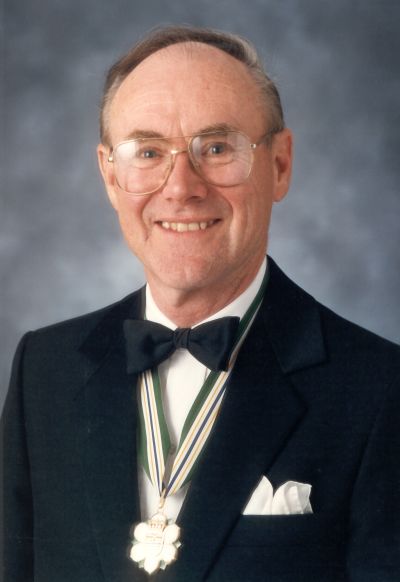
- Year: 1991
- City: Burnaby
- Region: Mainland/Southwest
- Category: Business
Grace MacInnis *
After graduating from the University of Manitoba and attending the Sorbonne in Paris, following in the footsteps of her father, J. S. Woodsworth, founder of the Co-operative Commonwealth Federation (C.C.F.), Grace MacInnis became one of its key members.
She married a prominent member of the C.C.F., Angus MacInnis, M.P. and in the early days of her marriage, Mrs. MacInnis, motivated by her strong belief in democratic socialism, spoke on behalf of the Party all across Canada. She was a delegate to the Party's founding convention in Regina in 1933 and subsequently held many senior offices with both the C.C.F. and later the NDP, provincially and federally.
Between 1941 and 1945, she was a member of the provincial legislature for Vancouver Burrard. At the time of her appointment to the Order of British Columbia, she, along with only one other, were the only surviving members of the Legislature elected in 1941.
In 1965, Grace MacInnis was elected to the House of Commons in the riding of Vancouver Kingsway to become B.C.'s first woman member of Parliament and served until her retirement in 1974.
Throughout her lifetime, Grace MacInnis was recognized as a champion of women's rights. She served on a federal committee inquiring into post war problems of women and was a delegate to the International Assembly of Women convened in 1946.
During her years in Parliament she was her party's spokesperson on consumer affairs and was a strong and effective advocate for social reform. Through it all, her efforts have always been marked by her quick wit and good grace.
Included in her several articles and publications is her best-selling biography, J. S. Woodsworth – A Man to Remember, published in 1953.
She was appointed an Officer of the Order of Canada in 1974 in recognition of her service to others.

- Year: 1990
- City: Sechelt
- Region: Vancouver Island/Coast
- Category: Public Service
E. George MacMinn *
E. George MacMinn demonstrated outstanding achievement and commitment to public service throughout his professional career in law and at Parliament. He was the most senior parliamentary officer of the British Columbia Legislative Assembly, and the longest-serving table officer in any Commonwealth Parliament, having served 14 Speakers, 10 Premiers, and hundreds of MLAs over 47 years.
Mr. MacMinn was regarded internationally as a pre-eminent expert on parliamentary law, practice and procedure. His book, Parliamentary Practice in British Columbia, was in its third edition, and has been widely used throughout the Commonwealth. The book was considered the authority of choice in the B.C. Legislature. He was invited to speak at Oxford University in England on the Westminster System as it has been practiced in Canada. He was an honorary life member of the American Society of Legislative Clerks and Secretaries.
Mr. MacMinn had also been a longtime supporter of the Legislative Assembly Internship Program, which provides university students the opportunity to supplement their academic training. Under his leadership, a Public Education and Outreach office was established to promote further understanding of B.C.'s parliamentary system to all citizens.
Mr. MacMinn set exemplary standards for fundraising and volunteer work. He demonstrated his commitment to the community by playing a crucial leadership role in numerous organizations, and by fostering good relations between Opposition Members, Government Members and the media.
Mr. MacMinn was appointed to the Queen's Counsel in 1993, and was awarded the Queen's Medal for Outstanding Service to the Legislative Assembly in 2003.
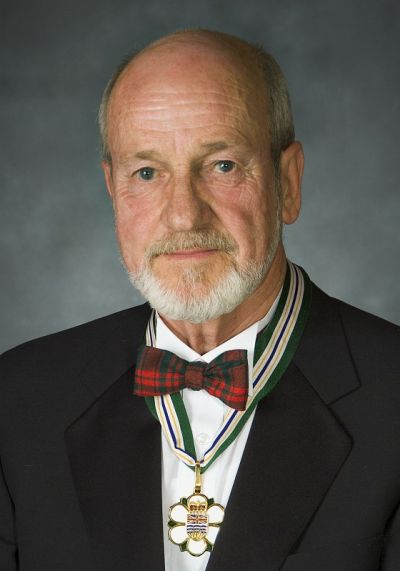
- Year: 2005
- City: Victoria
- Region: Vancouver Island/Coast
- Category: Public Service
Joy MacPhail
Joy MacPhail has made a major contribution to her province through decades of service as an economist, social activist, member of the B.C. legislature, government minister, leader of her party and now as owner of the world’s longest-airing gay and lesbian television network, OUTtv.
MacPhail’s dedication has always been to give British Columbians the opportunity to create better lives for themselves. She fought for this goal with intelligence and passion, achieving much through a colourful and successful career.
As an MLA, MacPhail served as an effective opposition politician. She also served as a minister, government house leader and deputy premier. Following the 2001 election, she was one of only two members of her party elected and almost singlehandedly provided the key function of parliamentary opposition for four years.
In government, MacPhail played many roles, but perhaps her most important was as minister of health, where her unswerving support for AIDS health funding played a major role in transforming that disease from a death sentence to a serious but manageable chronic condition in B.C.
Since leaving elected office, MacPhail has become a leader in another field: as owner of OUTtv. In a few short years after acquiring the network, she has increased OUTtv’s viewership from just over 100,000 viewers to more than one million. Always a champion of gay and lesbian communities, she has proven to be an adept businessperson.
Finally – and perhaps most importantly – MacPhail has served as an outstanding role model for young women.
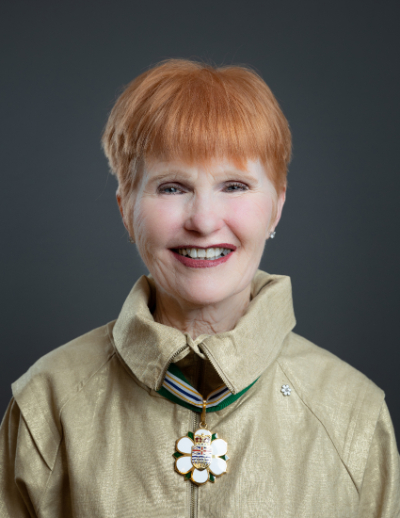
Year: 2022
City: Vancouver
Region: Mainland/Southwest
Category: Public Service
Rosalind MacPhee *
Rosalind MacPhee, a paramedic, author, poet, humanitarian and community leader, was diagnosed with breast cancer in 1991 and passed away in 1996, just a few days after finding out she had been selected to receive the Order of British Columbia.
Her journey through diagnosis, treatment and recovery is chronicled in her book, Picasso's Women: A Breast Cancer Story. In this book Mrs. MacPhee shared her personal crisis and brought discussion of breast cancer into the public domain. It is a work of literature that describes the medical and emotional progress of a disease that afflicts many Canadian women.
In 1995, Rosalind MacPhee was awarded the Canadian Authors Association Literary Award for non-fiction for her book and was honoured by the people of Lions Bay, her home of 23 years, with the Citizen of Distinction Award.
While Rosalind MacPhee lost her personal battle against breast cancer, her courageous words continue to speak from the pages of Picasso's Women, providing strength and guidance to countless women on this continent and abroad.

- Year: 1996
- City: Lion's Bay
- Region: Mainland/Southwest
- Category: Community Leadership
Fred Ting Shek Mah
Fred Mah has been a respected B.C. leader for six decades. Through advocacy for water quality, anti-racism, heritage conservation, cultural celebration, community building, international trade and cultural exchange, Mah’s volunteer initiatives have had provincial, national and international impact.
Born in Guangdong, China, Mah arrived at a young age in Dawson Creek with no English. Graduating from the University of British Columbia in 1961, he never forgot the struggles of others as he organized activities for Chinatown youth and taught English to immigrant women.
While he spent his professional career protecting the water quality of B.C. and Yukon, Mah contributed his remaining time and energy to extensive community initiatives. He helped found the Chinese Cultural Centre of Greater Vancouver in the mid-1970s, serving in every senior board position and organizing events and cultural festivals, including the Vancouver Chinatown Lunar New Year parade and the mid-Autumn Festival.
In 1986, Mah served on the Vancouver Centennial Commission and was a founding board member of the Vancouver International Dragon Boat Festival Society. Dragon boat racing is now a landmark civic event in B.C. He was a commissioner for the Fraser River Port Authority from 1999 to 2004. He also chaired the environmental committee for the port.
Aware of the water pollution because of his professional expertise, Mah formed and chaired the Friends of False Creek. Working with other citizens groups to develop southeast False Creek as a sustainable habitat and urban community, his advocacy helped the area become the envy of the world.
Mah shaped B.C.’s global impact as a founding board member and, later, chair of the Vancouver- Guangzhou Friendship Society and the B.C.-Guangdong Business Council. Through his leadership, B.C. premiers and Vancouver mayors visited Guangdong, creating ongoing cultural and trade exchanges.
A vigorous advocate for Chinese Canadian history as a way to promote equity and anti-racism, Mah was a founder in 2004 of the Chinese Canadian Historical Society of B.C., and chaired committees that built the memorial statues and Shanghai Alley projects in Vancouver’s Chinatown. During his service with the Chinese Benevolent Association, he chaired its housing committee that manages the seniors housing complex.
As vice-president of the Vancouver Chinatown Revitalization Committee, Mah helped create the community “Chinatown Vision” adopted by city council. In 2008, he founded and chaired the Chinatown Society Heritage Building Association that included 11 organizations. Under his direction, the Mah Society restored its building in 2017, which was the first heritage renovation of its kind in Chinatown. Mah’s vision and leadership guided the process that led to the federal designation of Vancouver Chinatown as a national heritage site in 2012, a crucial step in fulfilling his vision that Chinatowns should be recognized as UNESCO World Heritage Sites. He continues his community service on the board of the new Chinese Canadian Museum and the Chinatown Legacies stewardship committee.
Mah was recognized in 2012 with the Queen Elizabeth II Diamond Jubilee Medal, and by the City of Vancouver in 2013 with the Civic Merit Award. Perhaps his greatest legacy, however, has been his quiet mentorship of younger leaders. Mah has taught generations how to build a more just and inclusive society through the difficult work of nurturing coalitions to achieve collective goals.
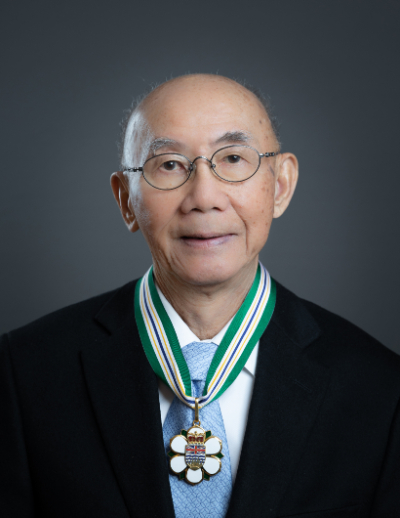
Year: 2022
City: Vancouver
Region: Mainland/Southwest
Category: Community Leadership
Roy Quock Quon Mah *
Roy Mah was among the first Chinese-Canadians to volunteer to fight for Canada in World War II.
In 1953, Chinatown News – the magazine he founded, edited and published for 42 years – was the first and only English-language publication for Canadian-born Chinese.
He was invited by Prime Minister Trudeau to join the 30- member Canadian press corps on the first-ever state visit to China in 1974.
Mah organized the first public celebration of Chinese New Year in 1963.
He sat on the board of the Vancouver Sun Yat-Sen Garden Society when it planned and built the park in Chinatown.
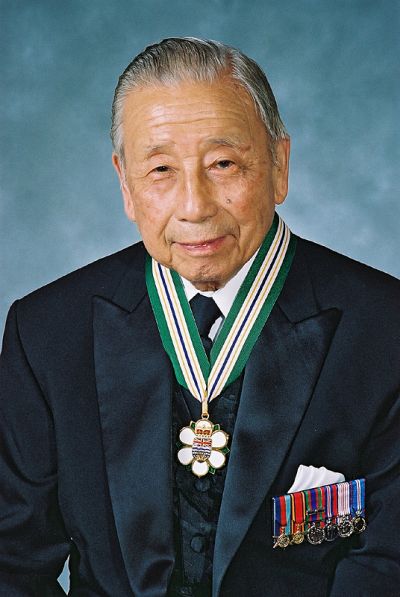
- Year: 2003
- City: Victoria
- Region: Mainland/Southwest
- Category: Community Leadership
Harinder Mahil
Harinder Mahil, the former commissioner of the British Columbia Human Rights Commission, has made pivotal contributions to the province.
When he immigrated to B.C. in 1970 at the age of 19, he was only able to get farming jobs in Abbotsford and the surrounding areas. His desire to build a better life here led him to work long hours and look past the unnecessary clawbacks from labour contractors taking advantage of the immigrant workforce. Mahil felt for the older workers in their 60s for the working conditions they had to endure, and he told himself he would do something to make lives better for everyone. His organizing efforts and activism to end workers’ exploitation led to major changes in B.C.’s Employment Standards Act, which saw the inclusion of farm workers in protections afforded by the act. It also led to the formation of the Canadian Farmworkers’ Union.
After a variety of farming jobs, Mahil was able to secure work in a sawmill, which eventually led him to a role as an Industrial, Wood and Allied workers (IWA) staff member and activist, making it his mission to work together with others to improve lives of sawmill workers.
Mahil stepped up in the 1980s and was one of the fearless leaders who fought back against the influx of the Ku Klux Klan becoming established in B.C. He was one of the founders of the B.C. Organization to Fight Racism, an organization that challenged hate. The anti-racism group led to the creation of others that continue to this day.
Mahil worked for the B.C. Ministry of Labour from 1982-92 and for the B.C. human rights agencies from 1992 to 2002. He then worked for the Professional Institute of the Public Service of Canada as a labour relations professional.
For the past 50 years, Mahil has been a champion to improve the lives of others and make B.C. a better place. As a labour relations and human rights professional, he successfully resolved thousands of workplace disputes between workers and employers, represented union members, worked with labour and business organizations, and led labour task forces.
Mahil became the chair of the B.C. Council of Human Rights, the deputy chief commissioner and then the acting chief commissioner of the B.C. Human Rights Commission. He has been a strong defender of everyone’s human rights, but also made it his principle that “we all have the right not to be discriminated against, but also have the responsibility not to discriminate against others.” He is continuing to educate about the rights and responsibilities afforded to all British Columbians regardless of race, colour, gender, creed, religion, sexual orientation, disability or income.
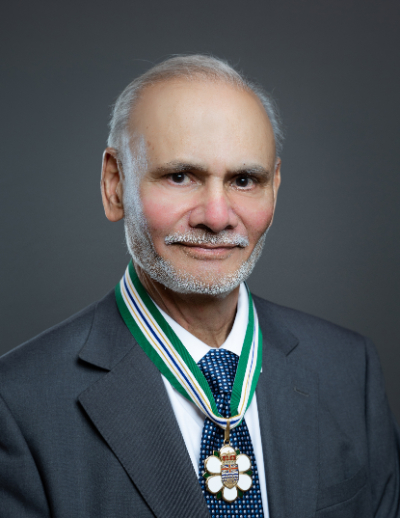
Year: 2022
City: Coquitlam
Region: Mainland/Southwest
Category: Labour
Eleanor Malkin *
Eleanor Malkin was extraordinarily successful in raising funds for worthwhile causes. By giving generously of her time and energy, she made a considerable difference to the cultural life of her home town: Vancouver.
Her charitable work started many years ago. She joined the Junior League in 1936 and was a founding member of the Vancouver Symphony Society in 1947. During her term as symphony president, she initiated the first school concerts and orchestra tours through the province.
In 1964 she founded the Society for the Welfare of the Arts, Sciences and Health, better known as SIWASH. This annual gala charity auction used its first year's proceeds to set up the volunteer services at the Health Science Centre at U.B.C. and help the Vancouver Symphony Society. Later it was renamed the “Endeavor Society” and during 30 years it has raised nearly $7 million and distributed it to 76 beneficiaries.
No stranger to awards, our recipient was inducted into the Order of Canada in 1991 for her work in endeavor and more recently in 1995 won the YWCA Woman of Distinction Award for community and humanitarian service.
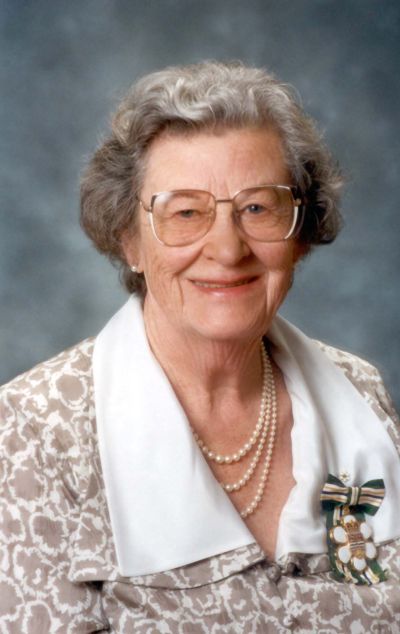
- Year: 1996
- City: Vancouver
- Region: Mainland/Southwest
- Category: Community Leadership
Professor Maureen Maloney
A renowned lawyer, public policy practitioner and facilitator, Maureen Maloney has devoted her life to advancing human rights and promoting social and economic justice on behalf of women, Indigenous Peoples and other marginalized groups. Her work has improved lives and expanded opportunities for British Columbians, making B.C. a more inclusive, fair and progressive society.
In 1990, Maloney was the first woman in B.C. (and second in Canada) to become dean of a law school. As dean of the University of Victoria’s (UVic) faculty of law, she introduced measures to ensure a more diverse student body by establishing special admissions criteria and processes for Indigenous students and students disadvantaged by reason of disability, ethnicity, economic status or other factors. She helped create Canada’s first chair in environmental law, leading to Canada’s first environmental law clinic.
In 1993, Maloney was appointed deputy minister to the attorney general, and, in 1997, became the first woman to serve as B.C.’s deputy attorney general. Thus, she championed reforms that improved access to justice for disadvantaged individuals and groups, expanded restorative justice programs, enhanced support for women who suffer domestic violence and better recognized and protected victims’ rights.
From 2000 to 2010, Maloney served as the Lam chair in law and public policy and director of the Institute for Dispute Resolution at UVic where she led initiatives to advance human rights, resolve conflicts and promote justice reform domestically and internationally. Since 2010, Maloney has been a professor at Simon Fraser University’s school of public policy where her teaching and research interests relate to justice systems, human rights and conflict resolution.
As an academic, Maloney has been actively involved in governance, dispute resolution and human rights projects in the Middle East, South-East Asia, China, South America, Central America and Africa. She has been a board member of the International Commission of Jurists (Canadian Section) and a member of the education and training committee of the Foundation for International Commercial Arbitration and Alternative Dispute Resolution (The Hague). She also served as a board member of the Canadian Human Rights Foundation and as a member of the Canadian Human Rights Tribunal.
In 2018, the B.C. Ministry of Finance appointed Maloney to chair an expert panel on money laundering in real estate in B.C. The panel’s groundbreaking report gained worldwide attention and has been influential in informing government policy. She has since been called upon to share her expertise nationally and internationally on the social and economic harms caused by money laundering and on policy measures to combat it.
Maloney was appointed to the Queen’s Counsel in 1995 and earned numerous awards and recognitions for her work, including the 125 Confederation of Canada Medal for contributions to the country; a recognition award from the Canadian Bar Association, B.C. Branch for contributions to the B.C. Justice System; and a recognition award from the Government of South Africa for reducing violence against women.
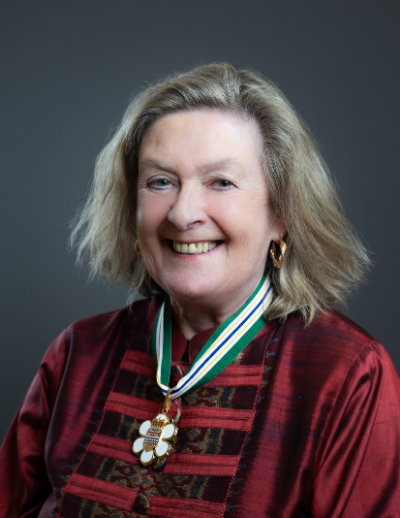
Year: 2022
City: Victoria
Region: Vancouver Island/Coast
Category: Public Service
John Mann *
John Mann was a founding member of one of British Columbia's iconic musical groups, Spirit of the West. He was also an actor, solo artist and dedicated humanitarian.
Spirit of the West was formed in 1984 and John played a key role in its life, growth and message. Over its 30-plus year history, Spirit of the West has been recognized as a pioneer in Canadian Celtic music, having toured extensively in Europe, the United States and across Canada.
With nearly 300 recorded songs, one in particular, Home for a Rest, has become a multigenerational favourite, known by millions and often called Canada's unofficial national anthem. The band's song lyrics resonate deeply with individual experience and John's distinctive voice is the band's trademark.
John's contributions to charity were remarkable, especially considering the great challenges he faced in his own life. A cancer survivor, Mann worked actively with the BC Cancer Agency and BC Cancer Foundation. In 2014, John announced that he had early onset Alzheimer's disease. For two more years, until April 2016, the band continued to perform together, with John courageously staying fully involved and contributing to society's awareness of Alzheimer's disease. He also donated his time and talents to the Alzheimer societies in BC and Ontario.
He also did charitable work assisting orphaned children in Swaziland.
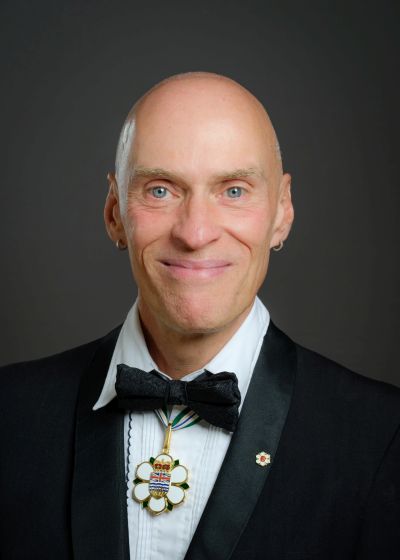
- Year: 2016
- City: Vancouver
- Region: Mainland/Southwest
- Category: Arts and Culture
Tim Manning
A business leader with a 41-year global career with RBC Royal Bank Canada, Mr. Tim Manning has lent his expertise to many corporate and non-profit causes including the Greater Vancouver Board of Trade.
Professionally, his work spanned the globe, including coordinating the internal audit practice of RBC Royal Bank's Canadian, U.S., and Caribbean operations, and leading RBC's Asian business banking in Vancouver. In the final decade of his career, Mr. Manning provided leadership to a team of 14 vice presidents and 250 employees.
Mr. Manning volunteered on many boards — corporate and non-profit. Under his leadership the Greater Vancouver Board of Trade announced the first gender-balanced board of directors in its history, making national headlines as the first major business organization in the country to have a gender-balanced board of directors.
While serving on the board of the Provincial Health Services Authority, he helped deliver six consecutive balanced budgets and provided excellent project oversight on the new $676-million Teck Acute Care Centre at BC Children's Hospital. While on the board of BC Emergency Health Services, he helped the launch of an innovative Community Paramedicine Program with 80 new full-time employees to enhance emergency response in small rural and remote areas. He also was involved in the launch of a program to address opioid overdoses and provide naloxone training for over 20 fire departments.
He made time to support organizations that touched his heart, such as Junior Achievement of British Columbia (JABC), Variety the Children's Charity, Canadian Hockey Foundation, Justice Institute of BC Foundation, and the Canadian Athletic Foundation.
As chair of the JABC, he helped secure two gifts of $1 million from the provincial government, allowing educational programs to reach students in all school districts and to increase program delivery to Indigenous students.
He has been recognized as Mississauga Volunteer of the Year and was inducted into the Mississauga Hockey Hall of Fame for his volunteerism in that community before moving to B.C. He was awarded the Queen Elizabeth II Diamond Jubilee Medal and H.E. Miskiman National Leadership Award from Junior Achievement of Canada. Professionally, Mr. Manning was the winner of the Excellence 91 Sales and Marketing Campaign.
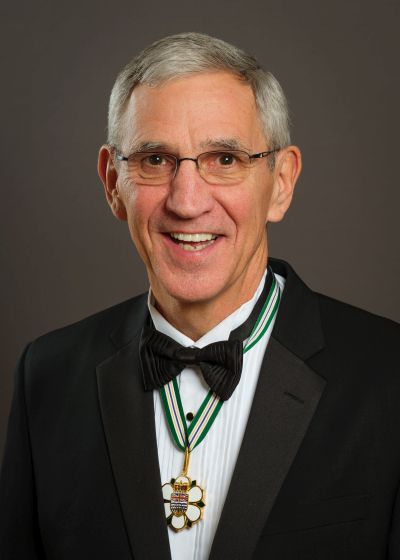
- Year: 2017
- City: Kelowna
- Region: Thompson/Okanagan
- Category: Business
Honourable Leonard Marchand *
The Honourable Len Marchand, a member of the Okanagan Indian Band, had a distinguished career in Parliament, in Cabinet and in the Senate prior to his retirement in 1998.
Len Marchand advocated for a stronger role for First Nations, Inuit and Métis in Canadian political life. He was the first and only First Nations person to be elected to the House of Commons from British Columbia and he was elected three times. In Ottawa, he was appointed as a parliamentary secretary, as a minister of state and as Minister of the Environment.
Mr. Marchand was able to influence Canadian policy from the inside in a way that no other Aboriginal Canadian had ever been able to. He was a passionate representative of Native people. After being appointed to the Senate he continued to advocate for and support the movement toward justice for all First Nations.
He strived to make Canada a better place at a time when he was basically alone in institutions that did not include First Nations in their considerations. He was not deterred by racism, prejudice or other obstacles. He also helped establish one of BC's first Aboriginal drug and alcohol treatment centres.
Len Marchand is a member of the Order of Canada. He received an honorary doctorate from Thompson Rivers University and the Queen Elizabeth II Golden Jubilee and Diamond Jubilee medals.
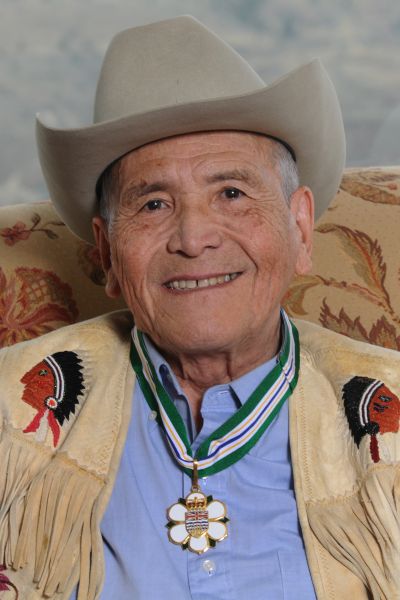
- Year: 2014
- City: Kamloops
- Region: Thompson/Okanagan
- Category: Public Service
Dr. Ray Markham
Some people have said that Dr. Ray Markham is a unique physician.
Dr. Markham is a career rural doctor who steadfastly, unwaveringly and intentionally serves the community of Valemont despite many challenges faced by rural medical care givers.
From the many stories that have been told to us, Dr. Markham has found ways to make it work – both resourcefully and sometimes, unconventionally.
He championed computerized medical records.
He opened a medical clinic in the evening for working people.
He advocated for a local rehabilitation centre.
Dr. Markham has performed surgery after the electricity went out, and during his lunch hour.
He calls patients at home to make sure they're okay.
He has helped them move furniture.
He provides palliative care so people can die at home.
He makes house calls.
His patients commonly refer to his friendly hand-shake, and the fact they never feel rushed in his presence.
Born and educated in Africa, he practiced South Africa, Newfoundland, and in the British Army in such places as Antarctica and Kenya. He earned The Sydney Herbert Medal and Prize for achievement in post-graduate medical officers training, and the Queen Mother Prize for GP vocational training.
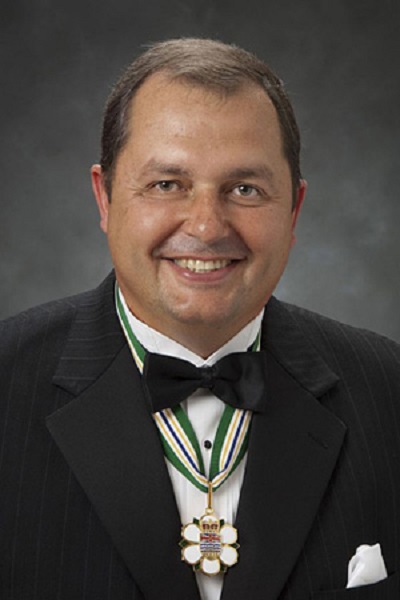
- Year: 2009
- City: Valemount
- Region: Cariboo
- Category: Community Leadership
Dr. Marco A. Marra
Scientist Marco Marra of Vancouver is a world leader in the field of genomics.
Canadian born and educated, with a PhD from Simon Fraser University, Marco Marra trained as a post-doctoral fellow at the Washington University Genome Sequence Center, one of the top two sequencing centres in the world at that time.
In 1998, Nobel Laureate Dr. Michael Smith and Dr. Victor Ling set out to establish the Genome Sciences Centre in Vancouver. Marco Marra was their top choice to head the Mapping and Sequencing teams.
Marco Marra took over as the centre's director when Dr. Smith died of cancer in 2000. The Centre now has more than 280 scientists, trainees and staff and a grant funding level averaging more than 25 million dollars each year.
Led by Marco Marra, the Genome Science Centre was first in the world to sequence the SARS virus in 2003. This discovery had huge implications for many diseases, including cancers, as the techniques used for SARs could be applied to many fields.
Marco Marra and his team were also the first to map the human genome, and in so doing, ensured the human genome sequence data remained in the public domain where it would be accessible to all.
Marco Marra has received many honours and awards in recognition of his outstanding scientific contributions and leadership. These include honorary doctoral degrees from Simon Fraser University and the University of Calgary; Fellowship in the Royal Society of Canada; a British Columbia Innovation Council Frontiers in Research Award; The Caldwell Partners International Best of the Best of Canada's Top 40 Under 40 award; and the Genome BC Award of Scientific Excellence.
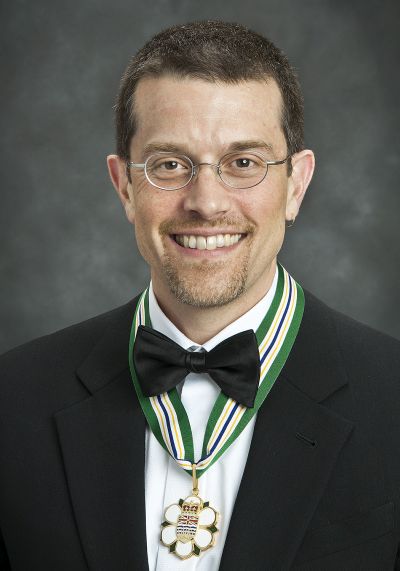
- Year: 2010
- City: Vancouver
- Region: Mainland/Southwest
- Category: Science and Technology
K. Barry Marsden
Barry Marsden is one of the founding members of Conair. Based in Abbotsford, this world leader in aerial firefighting is recognized as one of the most innovative developers of aerial firefighting equipment and aerospace technology.
Mr. Marsden began his aviation career in 1959 as a pilot and aircraft maintenance engineer. Conair, founded in 1969, provides aerial firefighting services world-wide using the latest technology and modifies conventional aircraft for such purposes. Barry has served in several capacities from operations manager to president and CEO. In 2007 he was appointed Chairman.
Cascade Aerospace, formed by Mr. Marsden in 2000, was a Conair subsidiary until 2012. This state-of-the-art specialty aerospace and defence contractor has a highly skilled labour force and is one of the largest employers in the Fraser Valley.
Mr. Marsden has been inducted into the Canadian Aviation Hall of Fame and recognized with a Masters Air Pilot award from the Guild of Air Pilots & Air Navigators in England. He also received the “Médaille De L'Aéronautique” from the Government of France. Barry Marsden is a member of the Order of Canada. He has been awarded an Honourary Doctor of Technology from the University of the Fraser Valley.
His innovative leadership, thinking and actions have contributed significantly to the development of British Columbia's high tech aerospace industry. It will continue to grow and develop, creating world-leading employment opportunities for British Columbia's skilled youth.
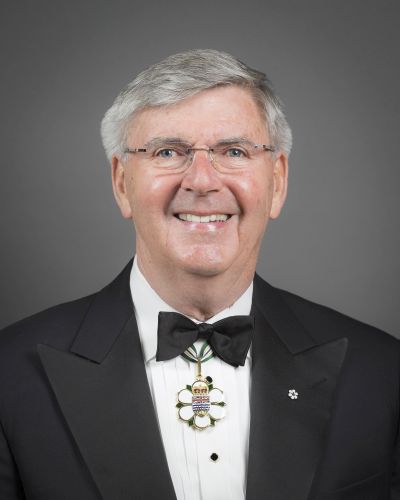
- Year: 2014
- City: West Vancouver
- Region: Mainland/Southwest
- Category: Science and Technology
Brenda Martens
Brenda Martens is a leading sustainability advocate and early adopter of green building practices who helped transform how buildings are designed and constructed in B.C..
She was one of the reviewers of the Leadership in Energy and Environmental Design (LEED) Canada guides, the standard that the province requires building projects to meet to qualify to receive provincial funding. She is one of the founders of Recollective Consulting, the first B.C. company dedicated to providing green building consulting, and continues to provide these services through her company, ædify consulting. She is co-founder of the Open Green Building Society, the originators of a worldwide Wiki database of green buildings.
As a green building practitioner, Martens has helped to make over 2,000,000 square feet (185,000 square meters) of built space in B.C. greener, saving water and energy and providing better places for British Columbians to live, work and play. She has worked on some of the most environmentally-progressive and largest projects in B.C., such as the Athletes' Villages; and some of the most modest, including BC Housing projects across the province and hundreds of units of social housing —helping to make them healthier, more durable, and more affordable (through energy and water efficiency) for the non-profit agencies that operate them.
She has worked countless volunteer hours to support non-profit environmental organizations such as the Canada and US Green Building Councils, and to create educational content to further the knowledge of sustainable design and environmental building practices. And she has selflessly open sourced and given away processes and resources to competitors in the industry in order to further the green building movement.
Martens' contributions have been peer recognized by her election to the board of the Cascadia Green Building Council in 2006, her appointment to the board of the Light House Green Building Centre in 2015, and her invitation to sit on the City of Vancouver's green building advisory committee. Nationally, she has been recognized by her appointment to the technical advisory groups, one of which she chaired, and LEED steering committee which are the highest green building technical positions in Canada.
Martens goes to extraordinary lengths to reduce her personal environmental footprint as evidenced from her 2013 participation in the World Masters Games in Torino Italy. It took her six days to cross North America from Vancouver to Wilmington, South Carolina by train; 11 days to cross the Atlantic as the only passenger on a freighter with a crew of 24 men; and further seven days (with stops) to travel by train from Antwerp, Belgium to the games in Torino.
Her awards include the Volunteer Leadership Award by the Canada Green Building Council (CaGBC) and she has been named a LEED Fellow, one of only 10 Canadians and 226 individuals in the world.
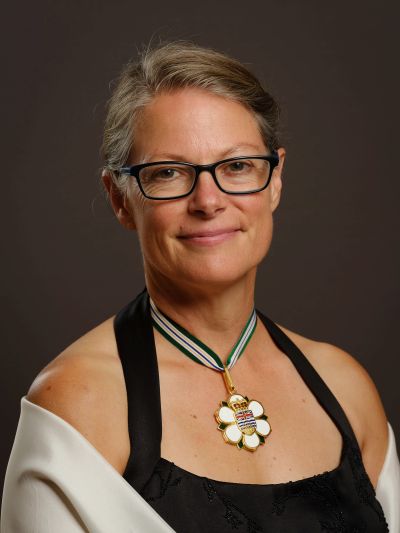
- Year: 2018
- City: Vancouver
- Region: Mainland/Southwest
- Category: Environmental
Bruno Marti
A world-class chef who has furthered the culinary arts in British Columbia and Canada, Mr. Bruno Marti is the owner of La Belle Auberge, an award-winning restaurant in Ladner.
Mr. Marti has led culinary teams in many international competitions, including coaching and competing in the Culinary Olympics and other competitions.
He was a member of the Canadian Culinary Olympic Team that won the world championship in 1984 and was honoured in the Canadian House of Commons by the then Prime Minister Brian Mulroney.
Mr. Marti founded Culinary Team British Columbia in 1980 and, for the last 30 years, he has taken many young skilled culinarians to competitions around the world. They represent British Columbia as Culinary Ambassadors of a cuisine that is uniquely Canadian and reflective of the cultural diversity and agricultural abundance of B.C
Mr. Marti has also been an active participant in fundraising, hosting dinner events for numerous community and charitable causes. He has been a member of numerous prestigious international food and wine groups. He is founder and chair of the BC Culinary Arts Foundation, past-president of the BC Chefs Association, and chairman of the Canadian Culinary Federation.
In his kitchen, Mr. Marti has trained many outstanding cooks and chefs. He mentors high school students and culinary apprentices, many of whom go on to win awards and gain prestigious culinary positions around the world.
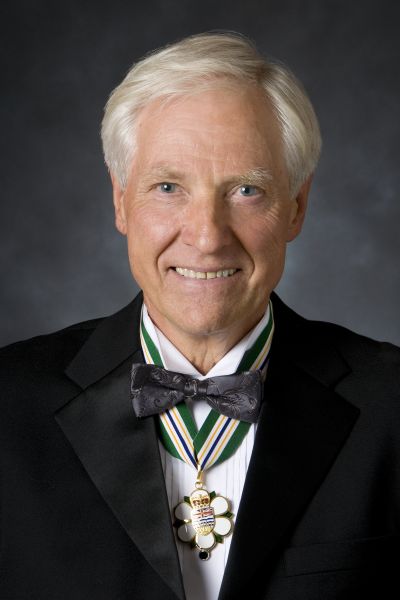
- Year: 2008
- City: Delta
- Region: Mainland/Southwest
- Category: Other
Carol Matthews *
For 45 years, Mrs. Carol Matthews was a model of excellence in leadership, nurturing others as a community leader, educator, writer, researcher and advocate for the arts and non-profit sectors.
Mrs. Matthews was an iconic figure in the landscape of Nanaimo-area non-profit agencies. She had been a voice for social justice and those most vulnerable.
After starting her career as a social worker, Mrs. Matthews became Executive Director of the Nanaimo Family Life Association and then a college instructor, dean and an honorary research associate at Vancouver Island University. As a former consultant and a volunteer, she assisted community organizations, government departments and educational institutions with strategic planning, facilitating vision and mission creation, leadership development, change management, team building and problem solving.
Mrs. Matthews' greatest achievement was leading with compassion and teaching others how to provide leadership in their organizations.
A colleague once joked that she was so busy on projects she believed in at Malaspina University-College (now Vancouver Island University), the Nanaimo Port Authority, her writers' group, KIDS International and other community activities, that she should have started a club called “starters anonymous,” focused on helping people like her who could not resist acting on good ideas.
In 1979, she was awarded the BC Year of the Child and Family Award, in 1999, the ACCC National Award for Excellence in Leadership and in 2009, she received an Honorary Doctorate from Vancouver Island University.
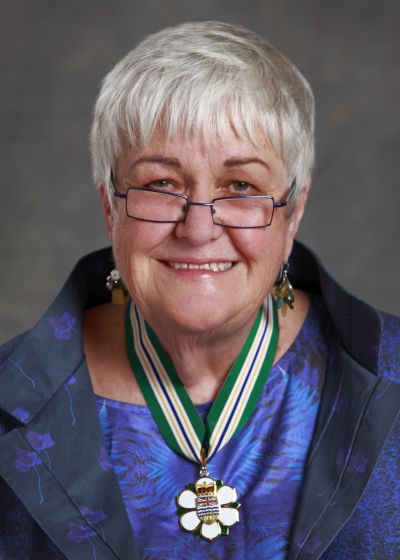
- Year: 2012
- City: Nanaimo
- Region: Vancouver Island/Coast
- Category: Community Leadership
Don A. Mattrick
Don Mattrick’s journey began at the intersection of innovation and entrepreneurship. In 1982, at 17 years old, he developed his first video games in his parents' basement in Burnaby making action and sports titles for Amiga, Apple II, Commodore 64, and PC DOS and co-founded Distinctive Software. What he could not know then was that he was helping lay the foundation of B.C.’s tech industry.
Distinctive Software, later acquired by Electronic Arts (EA), became one of the largest and most successful video game studios in the world with hit games such as the NHL, NBA Live, FIFA series and Need for Speed. At EA, Don’s role in creating blockbuster franchises resulted in his promotion to President of Worldwide Studios and the creation of The SIMS and Harry Potter franchises.
In 2007, he joined Microsoft and then was promoted to President, Interactive Entertainment Business group, overseeing the Xbox division. During this time, the Xbox 360 console experienced unprecedented success and he expanded the Xbox Live platform and launched Kinect, a revolutionary motion-sensing device. After Microsoft, he became CEO of social gaming giant Zynga, where his strategic initiatives helped stabilize the company and positioned it for future growth.
Don's impact on B.C. is evident in the remarkable numbers of game sales during his tenure. These games have not only brought happiness to countless people worldwide but have also significantly contributed to our region's economic progress. Don's dedication to B.C. has been unwavering, with his leadership in tech companies has attracted billions of dollars in investments to the province and created thousands of jobs, fostering B.C.’s reputation as global hub for technology and innovation.
As a former student of Simon Fraser University, Mattrick is passionate about mentorship and giving back to B.C.’s academic community. He has initiated numerous programs to help students and researchers explore cutting-edge technologies, bridging the gap between academia and industry. These initiatives extend beyond gaming, encompassing applications in education, healthcare, and quantum computing.
Currently, Don focuses on running MdGB Capital with his wife, Nanon. Their investment strategy emphasizes community development with a special focus on ventures led by female entrepreneurs, further contributing to the diversity and growth of B.C.’s innovation ecosystem.
Don’s visionary leadership has elevated B.C.’s prominence in the global tech arena but also inspired future generations of innovators to realize their potential in pushing the boundaries of what is possible in technology.
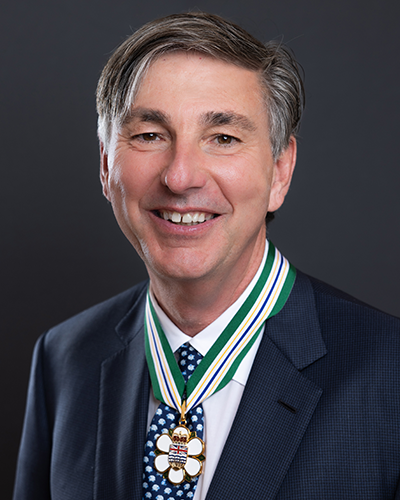
- Year: 2024
- City: Victoria
- Region: Vancouver Island/Coast
- Category: Science and Technology
Grace McCarthy *
Grace McCarthy was a highly successful businesswoman who opened her first flower shop at 17-years-old and built it into five flourishing shops. Then she decided to take on a public role. She was first elected as a Vancouver Parks Commissioner, and then for more than 22 years, she was an MLA and cabinet minister, serving as Deputy Premier with several portfolios during that time.
Retiring from public life, Grace McCarthy turned her attention to raising funds for research to help children with Crohn's Disease and Ulcerative Colitis. She was a founder and president of the C.H.I.L.D. Foundation, which raised over 10 million dollars, establishing the first chair in pediatric gastroenterology research in Canada at UBC and the first endowed program and the first laboratory at B.C. Children's Hospital.
Grace McCarthy was a woman with a list of firsts in her life: the first woman president of a Chamber of Commerce in Canada; first woman member of Variety International. She initiated Canada's first toll-free Help Line for abused children; successfully lobbied governments to enable women to own property without a male guarantor; she founded Canada's first school of floral design, initiated the Vancouver Trade & Convention Centre, established Canada's first linear parkway and initiated B.C.'s first film promotion office.
The list of organizations and associations to which she contributed, raised funds for, led and been given honorary memberships in, goes on for pages: from helping the handicapped, and advancing tourism, to initiating the process for British Columbia to host Expo '86. There is even a Grace McCarthy Highway named after her in Israel.
Grace McCarthy's other highlights include: Officer of the Order of Canada; Honorary Doctor of Laws from UBC and Simon Fraser University; Honorary Fellow of the Royal Architectural Institute of Canada; Honorary Doctor of Technology from BCIT; Order of Distinguished Service Worldwide from the Salvation Army; Lions International Highest Award; Marketer of the Year; Brotherhood Interfaith Award; Variety Golden Heart Award; and BC's Top Ten Citizens of the Century.
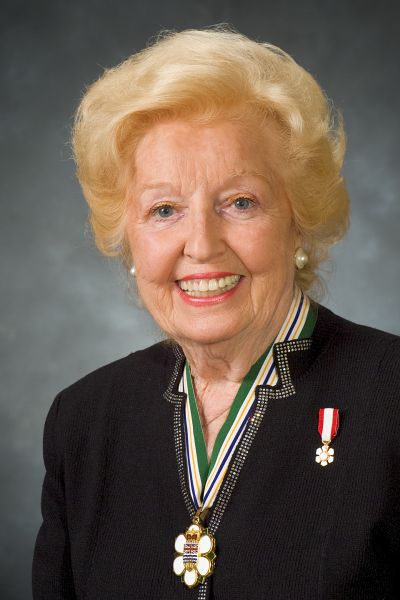
- Year: 2004
- City: Vancouver
- Region: Mainland/Southwest
- Category: Community Leadership
William P.J. McCarthy
"Work hard, live well, give back." These principles, taught by his grandfather John Jambor, have guided William McCarthy's journey as one of B.C.’s most impactful philanthropists. William has leveraged his real estate expertise to support community and healthcare initiatives across B.C., particularly in his home city of Burnaby.
His transformative contributions to the BC Cancer and Burnaby Hospital Foundations have revolutionized healthcare in the region. William’s historic $21.4 million Jambor-McCarthy Legacy, at the time the largest single-beneficiary bequest in B.C.’s history, alongside his personal donations and advocacy, have profoundly advanced cancer research and patient care throughout the entire province. In recognition of this and continued giving and support the new BC Cancer–Burnaby McCarthy Centre will bear his name, the first such honour for a donor. William’s community leadership has been pivotal, including most recently chairing a $60 million campaign in support of Burnaby Hospital's redevelopment, amongst the countless other healthcare and community initiatives that he has led and continues to lead.
A long standing supporter of First Nations art and culture, William empowers artists and fosters reconciliation through frequent commissions and gifting plans. A world renowned real estate expert and practitioner, William has continuously strengthened local communities through his work in real estate and philanthropy. From his recent $5 million gift establishing the BC Cancer-Burnaby McCarthy Centre to his tireless support of countless community initiatives both big and small, William’s unwavering commitment to giving back has improved countless lives, making B.C. a better place for generations to come.
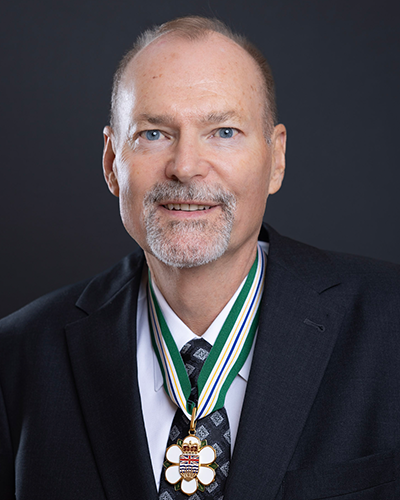
- Year: 2024
- City: Burnaby
- Region: Mainland/Southwest
- Category: Community Leadership
Wendy Burdon McDonald *
Wendy Burdon McDonald was a dynamic entrepreneur and leader in the field of business in British Columbia. Since 1944, she built a highly successful enterprise on what began as a small machine shop in Vancouver. Under her leadership, the BC Bearing Group is now an international group of companies, with 60 locations and over 500 employees.
Mrs. McDonald was a dedicated humanitarian and leader in the community. In 1990, she was the first woman to be elected chairman of the Vancouver Board of Trade in its 103-year history. She served on various boards and advisory councils, including the BCIT Board of Governors, and as a Trustee at UBC's University Hospital. She remained Chairman Emeritus of the BC Chapter of the Canadian Council for the Americas, and the Pacific Corridor Enterprise Council. She was also a Director of the CHILD Foundation, and a board member of the British Columbia Paraplegic Foundation.
Wendy Burdon McDonald received honourary doctorates from Simon Fraser University and BCIT. She was appointed a Member of the Order of Canada in 1997. She was recognized as Canadian Businesswoman of the Year in 1982, and as Leading Woman Entrepreneur of the World in 1998. She received the RBC Canadian Woman Entrepreneur Award, the Lifetime Achievement Award at the Influential Women in Business Awards, and the Lifetime Achievement PEAK Award at Women in Finance. In 2002, she was inducted into Sales and Marketing Executives International Hall of Fame.
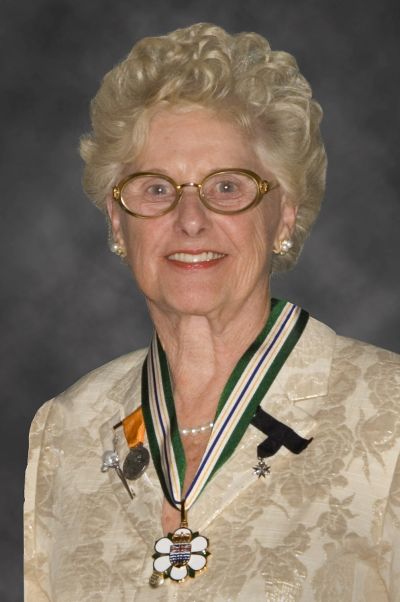
- Year: 2006
- City: Burnaby
- Region: Mainland/Southwest
- Category: Business
Dr. James McEwen
Jim McEwen, a B.C.-based biomedical engineer, inventor, entrepreneur, philanthropist, mentor and volunteer, revolutionized one aspect of medicine through his invention of the automatic surgical tourniquet, a medical device that has significantly improved surgical safety, quality and efficiency around the world.
McEwen received BASc and PhD degrees in electrical engineering from the University of British Columbia (UBC). He is a registered professional engineer and adjunct professor in UBC's school of biomedical engineering, department of electrical and computer engineering, and faculty of medicine. He has led and founded many successful companies and organizations, including Vancouver Hospital & Health Sciences Centre's biomedical engineering department, Western Clinical Engineering Ltd., Delfi Medical Innovations Inc., and the Medical Device Development Centre, a not-for-profit centre that facilitates the collaborative development and evaluation of new medical technologies.
The widespread adoption of McEwen's tourniquet technologies has significantly improved surgical safety, quality and economy. The idea for an automatic tourniquet arose in the late 1970s after McEwen, who had just earned his PhD, learned of a patient at Vancouver General Hospital who was injured by a conventional tourniquet during surgery. McEwen set to work on developing better technology. Four decades later, the tourniquets created by him and his team at Vancouver's non-profit Medical Device Development Centre have been used in more than 80 million surgical procedures worldwide — nearly 20,000 every day.
Today, McEwen's focuses on developing need-oriented medical technology that improves medical diagnosis and treatments and controls health care costs. He has over 240 patents and patent applications internationally for a range of medical devices, and continues to explore new innovations involving tourniquet technologies, such as those that support orthopaedic rehabilitation and cancer treatment.
McEwen has served on the Premier's Council on Science and Technology and as a board member of the Ernest C. Manning Awards Foundation, BC Institute of Technology (BCIT), and the ALS Society of BC. As board chair of the ALS Society of British Columbia he received the William Fraser Leadership Development Award and a BC Achievement Award for contributions including launching a design competition that pairs engineering and technology students with ALS patients to develop technologies to improve quality of life for those living with ALS (Lou Gehrig's disease), a fatal disease with no known cause or cure. McEwen also supports the next
generation of innovators through scholarships and bursaries for high school students who overcome adversity and achieve excellence while helping others.
McEwen's contributions have been recognized through his appointment as an Officer of the Order of Canada in 2011 and induction into the National Inventors Hall of Fame in 2020, where he joined an illustrious roster that includes fellow Canadians Frederick Banting and Charles Best, the co-discoverers of insulin. Other honours include the Queen Elizabeth II Diamond Jubilee Medal, honorary doctorates from Simon Fraser University and UBC, the Meritorious Achievement Award from Engineers and Geoscientists BC, the UBC Applied Science Dean's Medal of Distinction and the Principal Award for Innovation in Canada from the Ernest C. Manning Awards Foundation.
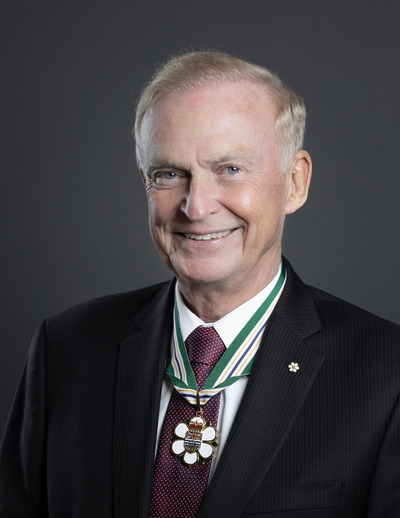
- Year: 2021
- City: Vancouver
- Region: Mainland/Southwest
- Category: Science and Technology
Gerald A.B. McGavin
Gerald McGavin is a generous philanthropist, who for over forty years has excelled in business and voluntary work, enriching the lives of many British Columbians. He supports many cultural and health-related campaigns, and he is also generous with his time in providing advice and encouragement to organizations.
Mr. McGavin is past-chair and director of the Vancouver Arts Stabilization Program, an innovative group that provided funding for eight Vancouver-based arts organizations. He is the chair of the Vancouver Foundation, and has served for many years as a trustee and chair of the Discovery Foundation, which was set up by the province to assist with the development and funding of BC universities, and the Science Council of BC.
Mr. McGavin also assisted in the establishment of endowment funds for the Vancouver Symphony and the Vancouver Art Gallery. He has served as director and chair of the BC Sports Hall of Fame, trustee and president of the Vancouver Art Gallery, and chair of UBC's Westbrook Society and Alumni Fund. He is also a life vice-president of the Vancouver Symphony Society.
Gerald McGavin is a Member of the Order of Canada, a Fellow of the Institute of Chartered Accountants and the Trust Companies Institute of Canada. He has received the Montblanc de la Culture Arts Patronage Award for Canada, the SFU Distinguished Community Leadership Award, the Lifetime Achievement Award from the Institute of Chartered Accountants of BC, and the Queen's Golden Jubilee Medal.
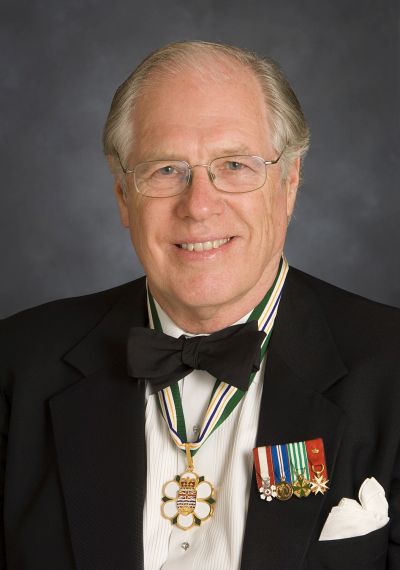
- Year: 2006
- City: Vancouver
- Region: Mainland/Southwest
- Category: Community Leadership
Dr. Edith * and Dr. Patrick McGeer *
Drs. Patrick and Edith McGeer were universally acknowledged as the leading researchers on Alzheimer's and other neurodegenerative diseases. They were among the world's top 100 most highly cited neuroscientists, having begun their work at the University of British Columbia in 1954 and continued it throughout their careers.
Both Doctors were Professors Emeritus in the Faculty of Medicine at UBC, and gave lectures around the world. Together, the McGeers published more than 550 papers in international scientific journals. In addition to research, the pair served on many scientific review panels in the field of neuroscience.
In addition to research, Dr. Patrick McGeer also served as MLA and Cabinet Minister until 1986, aided in efforts to make British Columbia a major centre for research and development, and created the Open Learning Institute of B.C. to provide skills training and university courses through distance education.
In 2004, Dr. Patrick McGeer was awarded the Henry Wisniewski prize given to the top Alzheimer's disease researcher. Their joint honours and awards included Honourary Doctors of Science degrees from UBC, the Medal of Service from the Cam Coady Foundation, the Clarke Institute of Psychiatry Prize from the University of Toronto, and a lifetime achievement award from the Science Council of B.C.
The Drs. McGeer were jointly appointed as Officers of the Order of Canada in 1995, and Fellows of the Royal Society of Canada in 2002.
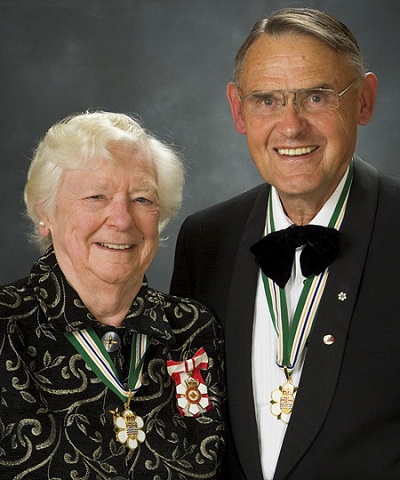
- Year: 2005
- City: Vancouver
- Region: Mainland/Southwest
- Category: Science and Technology
Scott McIntyre
Scott McIntyre was a founding partner of Douglas & McIntyre (D&M) Publishers, at one time the country's largest independent publisher that promoted Canadian authors and earned an international reputation for beautiful books on a range of subjects. What made the B.C. publishing house unique was McIntyre's interest in works about the history and art of Indigenous peoples of the Pacific Northwest Coast.
During McIntyre's 40-year tenure, D&M produced about 2,000 books on the arts, architecture, politics and history. They included works by such celebrated authors as Douglas Coupland, David Suzuki, Wade Davis, Lorna Crozier, Emily Carr, Richard Wagamese, Wil Ferguson and Wayson Choy. He took chances, often at personal financial risk, to champion less-known writers so that their voices could be heard.
McIntyre's firm celebrated the cultural and spiritual achievements of Indigenous peoples through the work of artists such as Bill Reid and Robert Davidson. It was important to McIntyre to communicate the need for the cultural survival of First Nations. The works opened new ideas, new discussions and new awareness of B.C.'s cultural heritage.
He fought equally hard to protect the cultural pulse of Canada, dedicating much of his time to advising the federal government in complex trade negotiations and standing up for the independence of Canadian interests. He played a key role in the development and implementation of the UNESCO Convention on Cultural Diversity, signed by 145 countries.
In addition to his role as publisher, McIntyre has dedicated his public service to various professional organizations, environmental groups, museums and cultural institutions.
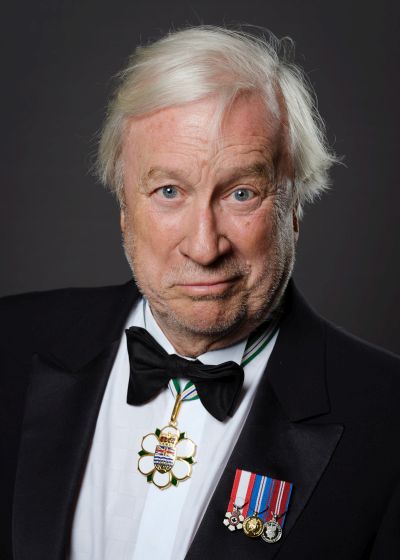
- Year: 2019
- City: North Vancouver
- Region: Mainland/Southwest
- Category: Arts and Culture
William Everett McKinney *
William McKinney went overseas as a soldier in 1942 and served in action in Normandy and Holland. He rose to the rank of captain and was mentioned in dispatches. In addition to his war service, he served in different capacities in the Reserve Army (Militia) continuously since 1949.
He was appointed to the rank of Honorary Lieutenant Colonel of the Royal New Westminster Regiment from 1972 until 1981 when he became the Honorary Colonel of the Regiment. He also served his community in many ways throughout his life – for example, President of the BC Canadian Diabetes Association, the New Westminster Lions Club, the New Westminster YMCA, to name but a few examples.
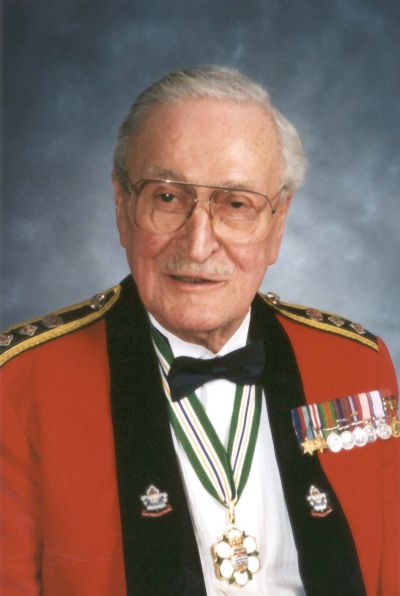
- Year: 1997
- City: New Westminster
- Region: Mainland/Southwest
- Category: Public Service
Sarah McLachlan
Since 1988, this prominent singer-songwriter has sold more than 25 million albums worldwide. Sarah McLachlan conceived and launched the Lilith Fair tour to showcase the talents of women performers. The North American tour donated over $3 million to various women's charities. Among her many entertainment and achievement distinctions are four Grammies, six Juno awards and an Oscar nomination. She was named to the Order of Canada, was the 1999 B.C. Entrepreneur of the Year and was named Chatelaine's Woman of the Year in 1998.
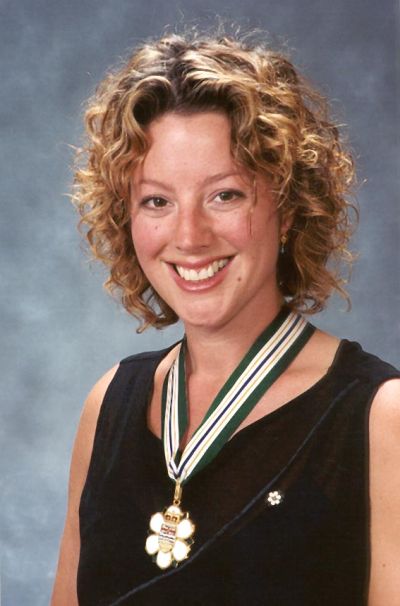
- Year: 2001
- City: Vancouver
- Region: Mainland/Southwest
- Category: Arts and Culture
David G. McLean *
David G. McLean of Vancouver was a successful businessperson who had invested energy, time and money in activities that enhanced the quality of life for British Columbians and Canadians.
He had furthered business and entrepreneurism in B.C., most notably as former chair of the Vancouver Board of Trade. Through his real estate firm, The McLean Group, he demonstrated his dedication to heritage re-development in Vancouver's historic Gastown district.
His work with Canadian National Railway and Concord Pacific had shown how economic objectives can be balanced with the needs of the community. He also devoted volunteer efforts to education, youth and the environment.
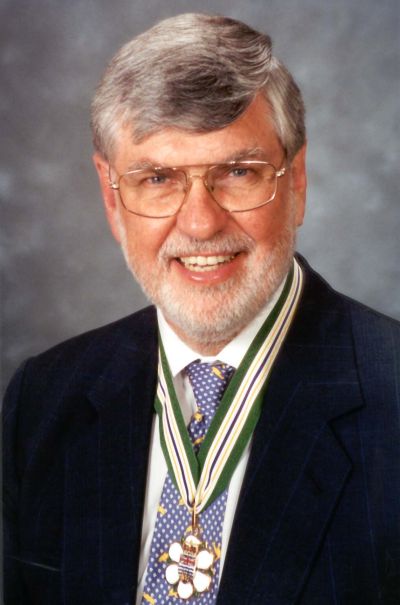
- Year: 1999
- City: Vancouver
- Region: Mainland/Southwest
- Category: Community Leadership
Dr. Judy McLean
Dr. Judy McLean is a global health educator from the University of British Columbia and researcher whose work on behalf of the nutritional health of infants and young children in Africa is un-matched.
As a nutrition advisor to United Nations agencies and Ministries of Health, Dr. McLean has been at the centre of implementing nutrition programs in sub-Saharan Africa.
She has been instrumental in initiating and supporting the distribution and use of ‘Sprinkles', a powdered micronutrient supplement designed to prevent vitamin and mineral deficiencies in infants and young children.
Notably in Rwanda her work included designing an implementation strategy, developing communications materials and training programs for community health workers and caregivers, conducting training sessions at the national and district levels, and ultimately, overseeing the national scale-up of a program targeting the specific needs of children aged 6-23 months. Through this work, Rwanda has become the first country in Africa to have a national home-based fortification program that reaches the majority of at-risk children with the vitamins and minerals they need for growth and development.
Dr. McLean's impact is based on her cultural sensitivities and her ability to build research and technology partnerships with the people of Africa and South East Asia so that that they can claim ownership and share responsibility for their success.
She equally earns the trust of colleagues and collaborators, and everyone from senior government officials to volunteers in rural orphanages. Her passion is infectious and she's quick to dispense with formalities and creature comforts.
She sets a strong example for her students who have gone on to study and work abroad after taking her University of British Columbia courses and the pioneering program she created in international nutrition.
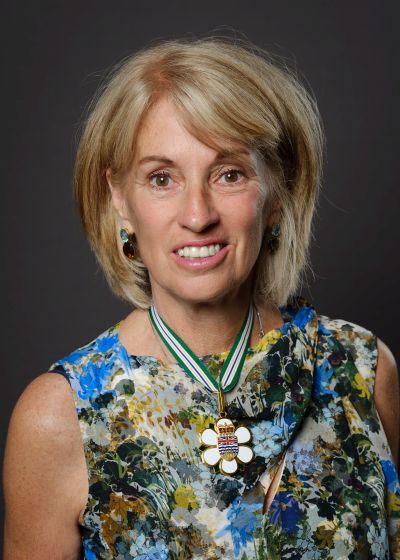
- Year: 2019
- City: Vancouver
- Region: Mainland/Southwest
- Category: Public Service
Dr. Bruce McManus
Dr. Bruce McManus has had a major hand in building excellence in heart and lung health sciences and medicine in Canada and B.C. for nearly three decades.
A versatile, magnetic leader of several units throughout the B.C. health sciences community, Dr. McManus has recruited and developed many outstanding faculty and trainees. He is known as an exceptional force for collaborative initiatives.
Dr. McManus leads the Centre of Excellence for Prevention of Organ Failure [PROOF], hosted by Providence Health Care and the University of British Columbia) and is the co-director of the Institute for Heart + Lung Health, a hub for research, clinical care and education.
His teams of scientists, physicians, economists and entrepreneurs are developing blood tests to improve the care of patients with failing vital organs.
Previously, Dr. McManus was the first scientific director of the Institute of Circulatory and Respiratory Health at the Canadian Institutes of Health Research where he led the creation of a national strategic research policy.
Dr. McManus is among the top scientists globally who focuses on solving viral heart disease mechanisms. He served on the executive of the landmark National Institutes of Health-funded therapeutic trial for viral heart disease (myocarditis).
For more than 30 years he has pursued unique work that has directly impacted lipid-lowering therapy for heart transplant patients. His pioneering work on heart transplant immune rejection and rejection biomarkers led to the Grand Prize in Translational Medicine at the Bio-IT World Congress in 2010.
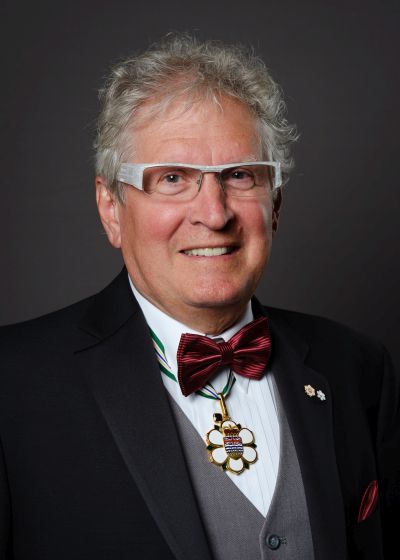
- Year: 2019
- City: Vancouver
- Region: Mainland/Southwest
- Category: Science and Technology
Dr. Ian McTaggart-Cowan *
Dr. Ian McTaggart-Cowan joined the faculty of the University of British Columbia in 1940. He had an impressive academic background that included a Ph.D. from the University of California, Doctor of Science degrees from the universities of British Columbia and Victoria, Doctor of Laws degrees from the University of Alberta and Simon Fraser University and a Doctor of Environmental Studies from Waterloo.
During his 35 years at UBC, he established an enviable reputation, travelling widely in his studies and publishing an impressive body of work. He was also involved in the production of 110 television documentaries and 12 teaching films.
Dr. McTaggart-Cowan devoted a lifetime to studying, teaching and conserving the natural resources of British Columbia. His involvement extended far beyond the UBC campus, right around the world. Naturalist ground around British Columbia frequently called upon his knowledge and enthusiasm to inspire members; many of those who listened would pursue careers in biology and involve themselves in environmental conservation.
Dr. McTaggart-Cowan was himself heavily involved, as chairman or member of many of the lead organizations concerned with the environment, such as the National Research Council's Advisory Committee on Wildlife Research and the Environmental Council of Canada, to name only two in a long list. He was a world-wide environmental emissary for British Columbia and Canada.
Although retired, he continued to serve on many committees, boards and organizations dedicated to ensuring the environmental integrity of British Columbia's natural resources. An internationally recognized conservationist, Dr. McTaggart-Cowan gave distinguished service to the people of British Columbia and their natural resources.
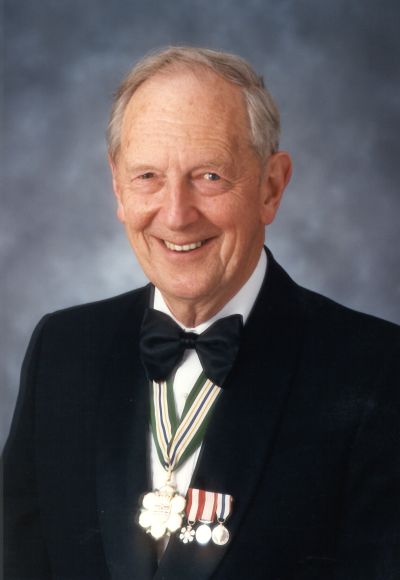
- Year: 1991
- City: Victoria
- Region: Vancouver Island/Coast
- Category: Environmental
Kenneth McVay
Kenneth McVay has been described as an “ordinary man who refused to concede the Internet to the purveyors of hate.” But the crusade he undertook to root out and expose electronic hate literature was anything but ordinary.
Neither a Jew nor an academic, Kenneth McVay's meticulous research and the electronic database he has built on hate literature have been recognized by academics, students, professionals and the media.
Backed by a volunteer team of 65 sympathetic computer activists around the world, Mr. McVay continues his battle against those who spread hate through the Internet. He has built a database of 2,500 electronic files – more than 2 million words – on fascism and the Holocaust which is regularly accessed for scholarly research.
He has been particularly concerned that young people flocking to the Internet, and impressionable first-time users are provided with a positive counter-balance to the hate propaganda they will find there.
Mr. McVay moved his family to Canada from the U.S. in 1967 and leads an outwardly unassuming life in a small city on Vancouver Island.
His efforts against electronic hate literature have made him Canada's resident expert on the subject and a much sought-after lecturer. It has also made him the object of numerous death threats.
Working to bring hate out in the open and expose it, Kenneth McVay provides a more effective antidote than censorship.
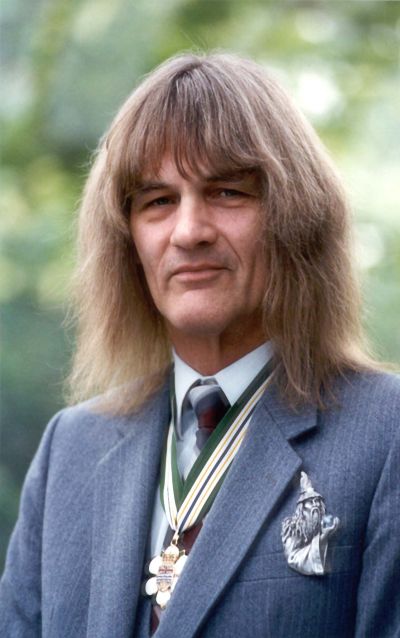
- Year: 1995
- City: Nanaimo
- Region: Vancouver Island/Coast
- Category: Other
Harry McWatters *
Harry McWatters is credited with building B.C.'s wine industry into the award-winning, internationally recognized industry it is today. In 1979, McWatters and a partner formed B.C.'s first estate winery in Summerland.
His contributions to B.C. were immeasurable: jobs, VQA wine, tourists and a shift in agricultural dynamics in the Okanagan Valley. He won numerous awards as a winemaker and marketer, including Wine of the Wine in the All Canada Wine Competition and Top Winery of the Year from the Globe and Mail, plus the Queen's Golden Jubilee Medal and an honorary doctor of laws from Okanagan University College.
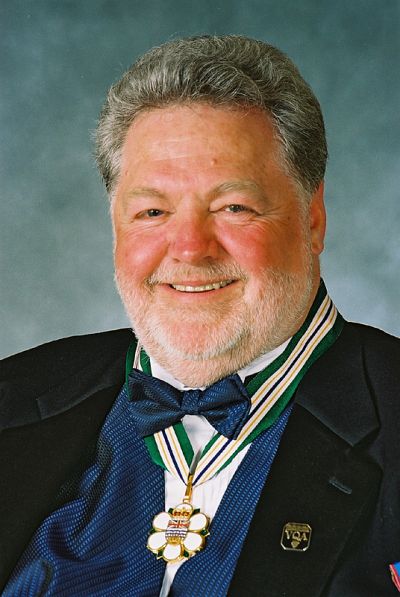
- Year: 2003
- City: Summerland
- Region: Thompson/Okanagan
- Category: Business
George C. Melville
George Melville is chairman and owner of Melville Global Investments Inc., a diversified investment portfolio which includes ownership in Mr. Lube, Naramata Benchland Properties and SKOOKUM Festival at Stanley Park. He also co-founded and previously owned T&M Group, which included Boston Pizza International Inc., and is now the largest owner of trust units in the Boston Pizza Royalties Income Fund.
Melville's career began in Penticton with an accounting practice at Peat Marwick Mitchell & Co. One of his first clients was a former RCMP officer named Jim Treliving who had opened a local pizza restaurant. A friendship formed along with a business partnership that has lasted for more than 46 years. Together they grew operations from one restaurant location to over 400 restaurants across North America, and invested in many other successful businesses that were collectively known as the T&M Group. Annual sales of the group exceeded $1 Billion and they employed thousands across Canada and the United States.
During his time with Boston Pizza, the business was celebrated as Canada's 50 Best Managed Companies Platinum Club and Canada's 10 Most Admired Corporate Cultures. In addition to the many recognitions received corporately, Melville has also personally been honoured with the Canadian Franchise Association's Lifetime Achievement Award, recognized as Entrepreneur of the Year, and has been inducted into the Business Laureates of British Columbia Hall of Fame as well as the British Columbia Restaurants Hall of Fame.
Adding to his many business achievements Melville has been a major philanthropist donating in excess of $30 million dollars to B.C. organizations including the Union Gospel Mission, Surrey Memorial Hospital, Covenant House and Rick Hansen Foundation. His donation to build Kwantlen Polytechnic University's Melville Centre for Dialogue has created a place for Canadian and International students to study, learn and develop a path for future success. His donation to the South Okanagan Similkameen Medical Foundations Campaign is enriching the learning and training environment for UBC medical students. As a result of his generosity, construction has started on the Peace Arch Hospital's much-needed 200-bed residential care facility, which includes a 15-bed hospice residence.
Giving of his time, Melville was director of the Boston Pizza Foundation Future Prospects which, since its inception in 1990, raised and donated over $25 million to Canadian charities. He was also chairman of the 2014 Hockey Canada Foundation Celebrity Classic and he has served on a number of volunteer boards including Governor for the Southern Interior Innovation Fund, Science World, Fraser Institute and the Premier's Economic Counsel. A past member of Kwantlen Polytechnic University's board for many years, he is presently serving his second term as the institution's chancellor.
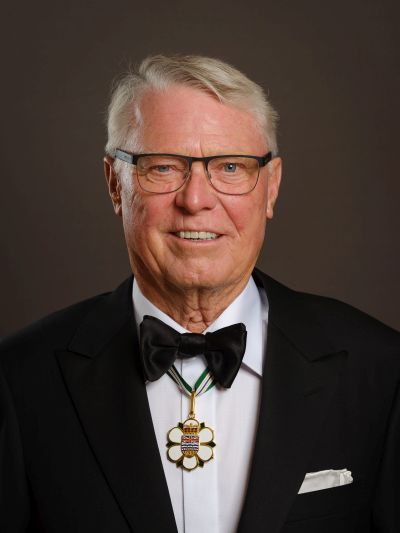
- Year: 2018
- City: White Rock
- Region: Thompson/Okanagan
- Category: Community Leadership
Ann Mundigel Meraw *
Ann Meraw rose to prominence as a long distance swimmer at an early age. She swam the 16.1 kilometres across Howe Sound and back in 1927, and went on to swim across Burrard Inlet at the age of 13, from Vancouver to Bowen Island.
She undertook many other competitive swims subsequently. Perhaps most prominent among these were, her 32 mile swim, accomplished in 16 hours and 14 minutes, non-stop, using a six beat crawl at sixty strokes per minute. Also remarkable was her 55 mile swim in 1958 from Kelowna to Penticton, which took 32 hours -12 minutes, a feat that has never been matched. Both marathon swims were on Okanagan Lake. She has held 7 world records in marathon swimming, 4 of which stand to this day.
Mrs. Meraw became Canada's first female registered life guard, and the only woman coach ever in the World Professional Federation of Swimming. She earned her living as a lifeguard, swimming coach, instructor and examiner. Over the years, she saved 63 people from drowning, seven as a life guard and the rest during her many thousands of hours of swimming. She was an outstanding member of the Royal Lifesaving Society for 78 years.
Mrs. Meraw remained active since her retirement, serving as a founding member of the Ridge Meadows Hall of Fame in Maple Ridge, president of her strata council, a Block Watch captain and a community policing volunteer, among many other community activities.
An elite athlete, a coach, and a tireless community activist, Ann Mundigel Meraw had a storied and involved past in Maple Ridge.
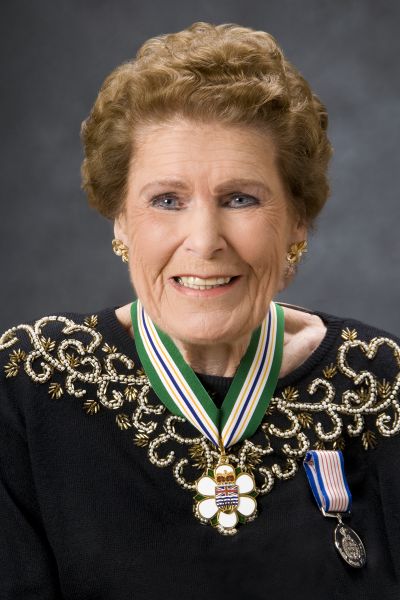
- Year: 2008
- City: Maple Ridge
- Region: Mainland/Southwest
- Category: Sports and Recreation
Dr. Norma Mickelson *
Dr. Norma Mickelson was a teacher, scholar, academic dean, and advocate for equity at the University of Victoria, and the first female dean of education in Canada. In recognition of her contribution to the status of women in Canadian universities, she received the first Sarah Shorten Award in 1991. Her research resulted in 140 publications, books, articles, poems, and educational videos that enriched the field of children's verbal learning and literacy evaluation. Following Mickelson's retirement from UVic, she was appointed to the board of governors and in 1997 was elected the first female chancellor of the University of Victoria. In 1998, she won the YMCA's Women of Distinction Award for lifetime achievement.
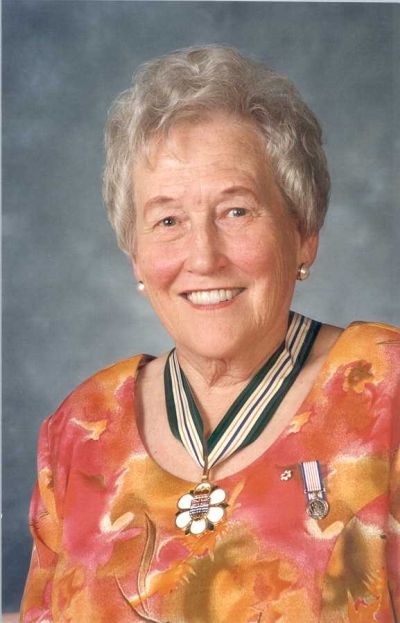
- Year: 2002
- City: Victoria
- Region: Vancouver Island/Coast
- Category: Education
Dr. Roy Akira Miki *
Dr. Roy Akira Miki is a distinguished scholar and teacher, one of Canada's finest poets and authors, and a passionate advocate for social justice.
Born on a sugar beet farm in Manitoba, where his Japanese Canadian parents were interned during the Second World War, Dr. Miki's early experiences with discrimination fuelled his drive to express his ideas and emotions.
As a writer, much of his work explores the complex issues of internment: history, memory, identity, displacement, race and redress.
Dr. Miki's willingness to write and speak out against injustice played a significant part in the success of the Japanese Canadian redress movement.
His human rights activism has helped change the shape of Canadian society.
He has authored or edited an impressive range of books, essays, papers and anthologies, many of which have received critical acclaim. A 2002 collection of his poems, “Surrender”, received the Governor General's Award for Poetry.
Dr. Miki's writing and voluntary contributions were recognized in 2006 with three major awards: the Order of Canada, Gandhi Peace Award and Thakore Visiting Scholar Award.
He is also a recipient of Simon Fraser University's Nora and Ted Sterling Prize in Support of Controversy.
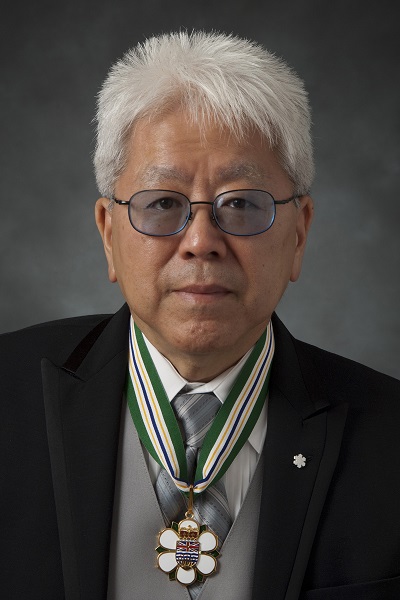
- Year: 2009
- City: Vancouver
- Region: Mainland/Southwest
- Category: Arts and Culture
William (Bill) Millerd
Bill Millerd has devoted his life to theatre in British Columbia. As Artistic Managing Director of the Arts Club Theatre Company in Vancouver, he has devoted more than four decades to nurturing the growth of professional theatre in BC.
Under his leadership, the third largest theatre company in Canada is robust, strong and has a huge audience – more than 185,000 patrons annually. The three venues: the Stanley Industrial Alliance Stage, the Granville Island Stage, and the Goldcorp Stage allow promotion of all types of theatre from well-known musicals to new productions, often in partnership with smaller, local theatre companies. Bill Millerd also established a touring program that provides many BC communities with the ability to develop audiences at their local theatres.
He has supported new plays that have debuted on the Arts Club stages and gone on to tour nationally and internationally – bringing the best of British Columbia to the world. A total of 535 plays have been produced during Bill's tenure including 134 works by Canadian playwrights and 88 premiere productions of new Canadian plays. This work underscores his deep commitment to developing local talent and launching the careers of many of the country's foremost playwrights and performers.
The newly built BMO Theatre Centre in the former Olympic Village district is witness to Mr. Millerd's enthusiasm and fearless pursuit of betterment in support of live theatre.
Bill Millerd received the Order of Canada in 1983. In 2009, he received a Doctor of Laws, honoris causa, from UBC. He resides in Vancouver and Denman Island with his partner Marsha Sibthorpe.
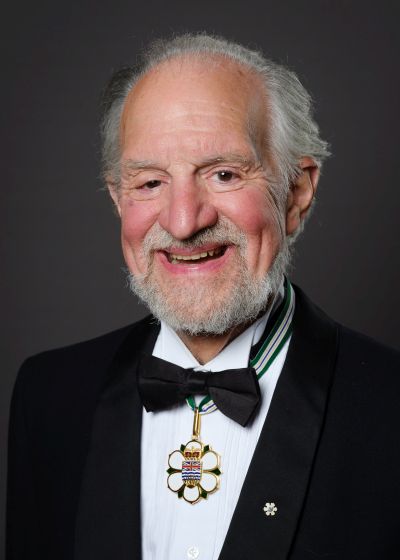
- Year: 2018
- City: Vancouver
- Region: Mainland/Southwest
- Category: Arts and Culture
Josephine Mary Mills *
For more than 30 years, Josephine Mills was a strong advocate and passionate supporter of children and families living with Down syndrome. She devoted her career to improving the quality of medical care, education, and opportunities in the community for people with Down syndrome and their families.
Ms. Mills was instrumental in founding three major organizations that address the needs of people with Down syndrome: Down Syndrome International, the Canadian Down Syndrome Society, and the Down Syndrome Research Foundation. Her vision and determination also led to the establishment of parent support groups across Canada.
Ms. Mills worked tirelessly to build relationships with university researchers, medical specialists, corporations, and organizations that provide service to the Down syndrome and developmental disability communities. Due to her efforts, the Ninth Annual World Down Syndrome Congress was held in Vancouver in August of 2006, the first time the conference has been held in Canada.
Ms. Mills influenced many others to join in her efforts to help children with Down syndrome maximize their potential. This included partnerships with Simon Fraser University, BC Children's Hospital, University of BC, and the University of Victoria – partnerships that have improved people's lives by increasing collaboration on research clinical services and other programs for people with Down syndrome.
Under her leadership and guidance, the Down Syndrome Research Foundation became a leading centre of excellence in this field, benefiting thousands of families and children annually through its programs and services.
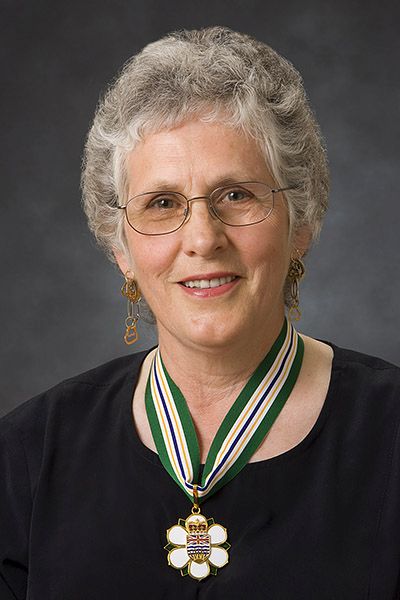
- Year: 2007
- City: Mill Bay
- Region: Vancouver Island/Coast
- Category: Other
Brian Minter
Brian Minter is an award-winning horticulturalist and entrepreneur who has provided inspiration to British Columbians on what is possible in the field of horticulture.
His acclaimed 32-acre Minter Garden was a top tourist destination for years and today passionate gardeners still flock to the Minter Country Garden for advice and inspiration. He is a best-selling author and regular garden commentator on the CBC and BBC, gardening columnist in provincial, national and international newspapers and magazines, and host of a gardening series on the Knowledge Network. He is an international speaker on gardening and industry topics.
He has provided leadership in the area of climate change both in terms of new horticulture species and practice and is active in many professional gardening associations throughout B.C., Canada, the USA and Europe where he is in high demand as speaker and horticultural authority.
In addition to his gardening expertise, Minter has been the board chair and the first chancellor of the University of the Fraser Valley and has played a key role in the economic and social betterment of the Fraser Valley, the city of Chilliwack and the University of the Fraser Valley. He served on a range of economic, tourism and service organizations, often taking leadership roles.
Minter is the recipient of the Order of Canada and the Queen Elizabeth II Golden and Diamond Jubilee Medals and has an honorary doctorate from the University of the Fraser Valley. He was awarded the Order of Chilliwack in 2013. As well, many B.C., Canadian and American gardening and tourism associations have recognized his achievements with awards. They include a Canadian Horticultural Science Award; Fellowship in the Garden Writers Association of America, and induction into the Gardening Writers Associations' Hall of Fame; the Award of Merit, the highest honour from the Perennial Plant Association; and named 2015 Person of the Year by the Canadian Garden Council.
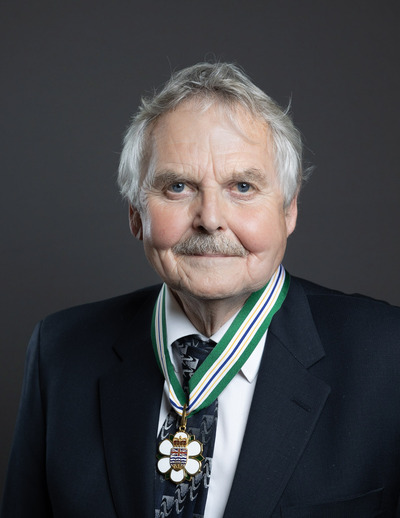
- Year: 2018
- City: Chilliwack
- Region: Mainland/Southwest
- Category: Community Leadership
Margaret Mitchell *
As a leader in social policy and women's rights, Margaret Mitchell put violence against women on the national agenda and played a critical role in having women recognized in the Charter of Rights and Freedoms. She pioneered community development in many Vancouver neighbourhoods helping to organize public housing, create opportunities for people on welfare. She was a strong advocate for minority rights and multiculturalism.
Her outstanding work as a community development worker inspired many social workers in B.C. to follow her path. Her book, Don't Rest in Peace, Organize, has been a beacon for community mobilization and empowerment.
As the Member of Parliament for Vancouver-East from 1979 to 1993 she voted against a pension increase for MPs and diverted her share of the increase to a special account to help the poorest in Vancouver's downtown eastside. With her support, the Margaret Mitchell Fund for Women grew and assisted women's organizations in East Vancouver dedicated to helping women help themselves in bettering their community. Her life was dedicated to helping people, starting with her service with the Red Cross in Asia and Europe where she helped refugees from war in their time of dire need.
Since her retirement from public service, she continued to serve British Columbia in many volunteer capacities, including being the first Chair of the BC Advisory Council on Human Rights.
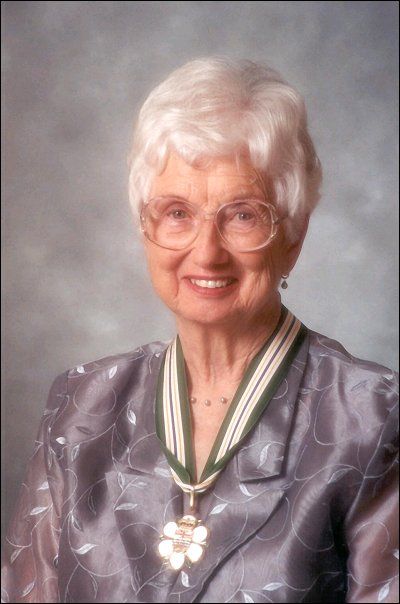
- Year: 2000
- City: Vancouver
- Region: Mainland/Southwest
- Category: Public Service
Dr. Julio S.G. Montaner
Dr. Julio Montaner is a B.C. clinician and researcher, who has been recognized by the international community as a leader in the field of HIV for over 20 years.
Over the course of his career, Dr. Montaner's achievements have benefited thousands of British Columbians, as well as people living with HIV across the globe.
Among his many achievements, Dr. Montaner helped pioneer a “made in B.C.” gold standard treatment for HIV, the Highly Active Anti-retro-viral Therapy – an achievement that has saved thousands of lives.
Dr. Montaner has played a pivotal role in establishing and evaluating the effectiveness of Vancouver's Supervised Injection Site, which supports hundreds of people who use injection drugs in Vancouver.
Currently, Dr. Montaner is leading scientific inquiry to determine if increasing HIV treatment coverage among affected individuals can reduce HIV transmission, a treatment that could offer new hope in the global battle against AIDS.
Dr. Montaner has published widely, authoring more than 400 scientific publications on HIV/AIDS.
His work along with his research colleagues has been recognised internationally through many prestigious research grants including a 2.5-million-dollar award by the National Institute for Drug Abuse at the US-NIH, and the Sanofi Pasteur Award, which recognizes Canadians who make a difference in conquering HIV/AIDS.
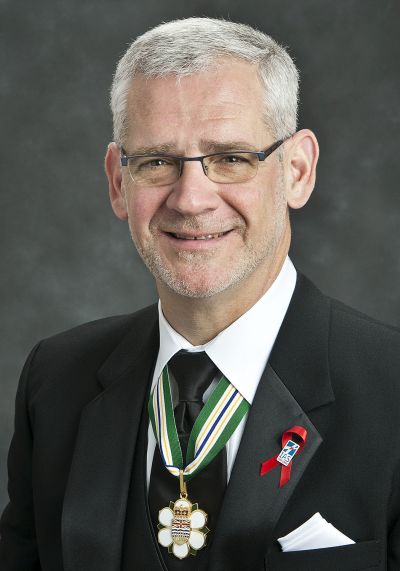
- Year: 2010
- City: Vancouver
- Region: Mainland/Southwest
- Category: Science and Technology
Chief Chester Moore *
Chief Chester Moore, a hereditary chieftain from the Nisga'a Community of Gingolx, was dedicated to the preservation of traditional arts in carving, cultural feasts, and dance groups.
Also holding the name Sim'oogit Hay'maas, he was privileged to have a traditional upbringing because he was one of the few not sent to a residential school. Chief Moore had been actively composing songs, choreographing dance groups and drum-drills, teaching carving and cultural practices since the early 1970s.
He assisted in the formation of cultural dance groups in the communities of Gitwinksihlkw, Laxgalts'ap and Gingolx. He taught cultural dancing in Terrace, Prince Rupert, and Vancouver. Chief Moore was proactive in adopting new media to support retention and promotion of culture. This was reflected by his incorporation of multimedia technology and his use of this medium to preserve and share Nisga'a culture.
Respected as a Nisga'a walking encyclopedia, his enthusiasm and support for cultural survival of the Nisga'a was reflected in the many totem poles he carved, murals he painted, drums he made, cradles he constructed, songs he composed, and drum drills he choreographed.
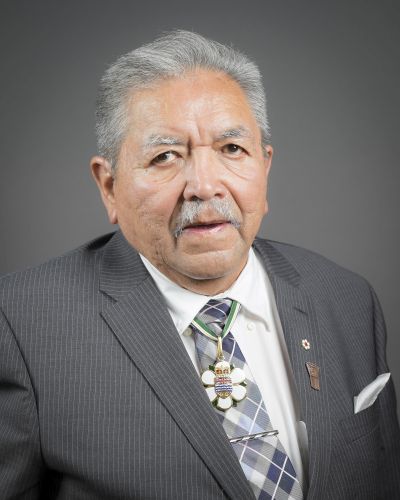
- Year: 2014
- City: Terrace
- Region: Northern B.C.
- Category: Arts and Culture
J. Mavor Moore *
J. Mavor Moore had a distinguished academic, cultural and public service career. The first Chair of the British Columbia Arts Council, he guided it through its formative years and left a legacy that will last for generations. As Research Professor in Fine Arts and Humanities at the University of Victoria, he contributed generously to the cultural and artistic life of British Columbia. His passionate advocacy for and defence of the arts and his talents as an actor, producer, director and playwright were legendary.
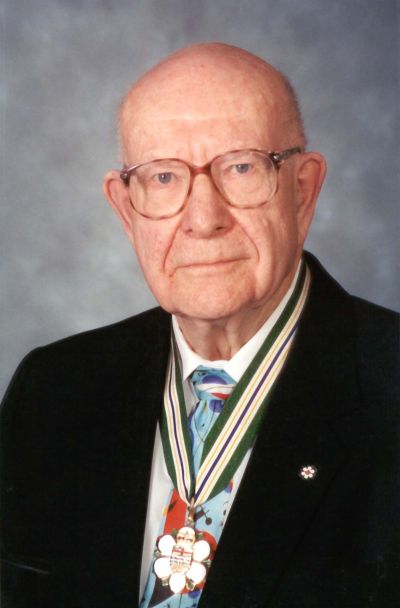
- Year: 1999
- City: Victoria
- Region: Vancouver Island/Coast
- Category: Arts and Culture
Sarah Morgan-Silvester
An influential business leader and senior banker, Ms. Sarah Morgan-Silvester served as the inaugural chair of the newly formed Port Metro Vancouver, Canada's largest port and the third largest in North America. She has made significant contributions to the community in her professional career and with multiple diverse non-profit organizations.
While executive vice-president for HSBC Bank Canada, Ms. Morgan-Silvester was responsible for national personal banking services. She was also president and CEO of HSBC Trust Company and is a fellow of the Institute of Canadian Bankers. A sought-after business leader, Ms. Morgan-Silvester has applied her business acumen to benefit the people of British Columba, serving on several non-profit boards and councils including the David Suzuki Foundation, National Business Advisory Council, the Blue Ribbon Council on Vancouver's Business Climate, the C.D. Howe Institute, the UBC Board of Governors, and the Vancouver Foundation.
Widely known for her conscientious leadership, Ms. Morgan-Silvester was appointed by the Province to oversee the critical integration of the three Lower Mainland port authorities and served as the inaugural chair of the newly formed Port Metro Vancouver, Canada's largest and most diversified port in North America.
As chair of the BC Women's Hospital and Health Centre Foundation board and as UBC's 17th Chancellor and a dedicated member of UBC's Campaign Cabinet, she helped these two provincial institutions achieve some of the largest campaign fundraising goals in Canadian history and raise over a billion dollars to transform health care and education in B.C. and Canada. She also led by example, making financial contributions to both campaigns and delivering many presentations in the community articulating the vision necessary to inspire others to donate. She actively volunteers as a mentor, advisor and guest speaker at UBC.
Ms. Morgan-Silvester received the Association of Women in Finance Lifetime Achievement Award, the Influential Women In Business Award, Canada's Top 40 Under 40 Award, and the Queen Elizabeth II Diamond Jubilee Medal. She has also been named one of BC's 100 Women of Influence and included on Vancouver Magazine's Power 50 List.
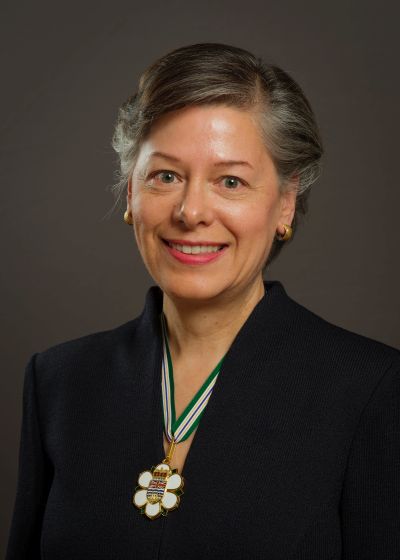
- Year: 2017
- City: Vancouver
- Region: Mainland/Southwest
- Category: Community Leadership
Basil Morissette
Kamloops resident Basil Morissette has dedicated more than 40 years of service to improving the lifestyles and economic opportunities of Aboriginal people in British Columbia.
Known by many as “Buzz” Morissette, he was a founding member of the original Native Courtworker Program, the first and vital bridge over the gulf between the justice system and aboriginal people. Over the years he became a household name for many Aboriginal and non-Aboriginal people in Vancouver's downtown east side where he counselled people in need.
He is a founding member of the friendship centre movement which, 40 years later, continues to offer programs and services in more than 100 communities nation-wide. Much of that work has been voluntary, as has his work in Native housing and daycare.
Buzz Morissette has shown his ability to work with virtually everyone to accomplish his goals, and has become a role model for many young people who consider him to be a mentor and trusted friend.
A Native Elder once said that “A real man is a man who speaks from his heart, acts only as he is capable and never portrays something he is not”. “Buzz” Morissette fits that description.
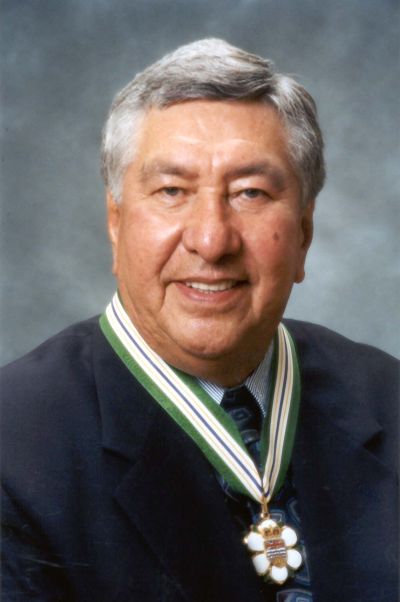
- Year: 1996
- City: Kamloops
- Region: Thompson/Okanagan
- Category: Other
Dr. Janet Nadine Mort
Internationally acclaimed innovative literacy curriculum designer, author of two books, organizer and speaker at over 28 educational summits, Dr. Janet Nadine Mort is responsible for the reading success of countless vulnerable primary learners.
Upon retirement in 2007, after a 35-year career as a teacher, principal, and superintendent of schools on Vancouver Island, Mort attained a PhD in language and literacy. Still determined to address the unmet needs of struggling primary students, Mort aligned her research and vast experience to develop her Joyful Literacy Interventions program. She formulated an effective assessment/teaching/tracking paradigm that educates children through playful activities.
Mort began highly productive pilot programs (ongoing) in Peace River South and Lau,welnew Tribal School in Brentwood Bay where her innovative teaching practices were successfully adopted. She continues to personally collaborate with over 200 teachers in rural and First Nations communities, demonstrating her selfless passion to achieve literacy success with disadvantaged, vulnerable children. Results in over 100 classrooms in B.C. have been outstanding: 80 to 90 per cent of K-3 children, in spite of vulnerabilities or significant cultural differences, are reading at grade level after three years in Mort's program. These results have been proven through independent, quantitative research, and seeing the successes of their students, teachers report a great sense of accomplishment.
As facilitator and a vibrant keynote speaker at 28 summits in B.C., Alberta, and Washington state, Dr. Mort's doctrine has reached over 15,000 educators representing many thousands of classrooms. Her summit sessions partner renowned international authors and researchers with hands-on workshops illustrating early literacy techniques.
Mort has written two books, “Joyful Literacy Interventions” and “Putting on the Blitz”. These books clearly weave together her essential assessment/teaching/tracking components with practical, joyful classroom applications that facilitate rich and stimulating student-teacher interaction.
Through the B.C. Ministry of Education, Mort's leadership skills led her to international influence as a consultant for a kindergarten program in Egypt for over three years. As superintendent of innovation, Mort again represented B.C. as an expert in early literacy at the World Congress of Education in Melbourne, Australia and at an international educational summit in New Zealand. She also generously had her two books translated and donated to an impoverished village school in Mexico.
Mort's publications and awards are many; a highlight being awarded the Queen's Jubilee Medal 2005 in recognition of service to children and to leadership in educational change. At 75 years of age, Mort continues to teach intervention strategies and mentor teachers in B.C. and beyond through her Joyful Literacy Interventions framework.
Following a stellar career, upon retirement, Mort chose not to relax. Instead she forged a new career path with an undaunted belief that she could give all young children an equal start in literacy. Her inspirational commitment to providing a successful school experience for all children will be her lasting legacy. For exemplary contribution to education in this province, we nominate Dr. Janet Mort for the Order of B.C.
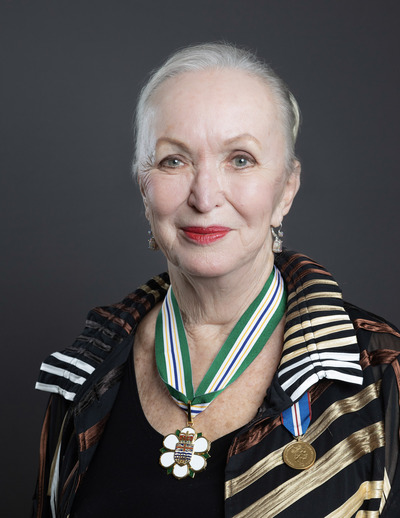
- Year: 2020
- City: Central Saanich
- Region: Vancouver Island/Coast
- Category: Education
Wendy Morton
Wendy Morton is a poet and highly effective facilitator known for her remarkable impact in making poetry publicly accessible. As well, her forays into poetic projects with Indigenous communities are contributing to healing and inter-generational bridges within those communities.
A creative force with a limitless imagination, Ms. Morton used her noteworthy powers of persuasion to convince WestJet to name her Poet of the Skies; and then Daimler Chrysler named her Poet of the Road. She is the visionary and founder behind a national movement entitled Random Acts of Poetry, in which poets across Canada read poems to strangers, and give them books. The movement spread across Canada, England, Scotland, Ireland, and Northern Ireland. It was used in middle schools, adult literacy programs and English as a Second Language classes.
Her poem “If I had a name like Rosie Fernandez” is on the label of Southbrook Vineyards Cabernet Merlot, Poetica series.
In 2009, she began working with Indigenous students throughout B.C., teaching them to be poets, and how to use the form to explore the stories of their Elders and turn them into poems. . Called The Elder Project, the resulting 18 chapbooks written by the students showcase the resilience of Indigenous Elders in school districts across B.C. and at Torngat Mountains National Park in Northern Labrador, where she worked with Inuit students and their Elders.
The Elder Project gained notice by the B.C. English Language Teachers and the University of British Columbia/British Columbia Principal's & Vice-Principals' Association. This year, as part of Canada's Truth and Reconciliation Calls to Action and at the World Indigenous Peoples' Conference on Education, The Elder Project Series was a featured presentation on the world stage.
She has been recognized with: the Inaugural Spirit Bear Award, founded by Patrick Lane and Lorna Crozier to recognize contributions to poetry of the West Coast; The Golden Beret award by the Calgary Spoken Work Society for contribution both to the spoken word genre and to the growth and development of the poetic community; Honorary Citizenship award from the City of Victoria; Colleen Thibaudeau Outstanding Contribution Award from The League of Canadian Poets; and the Meritorious Service Medal, from the Governor General of Canada, for her projects which have brought honour to Canada.
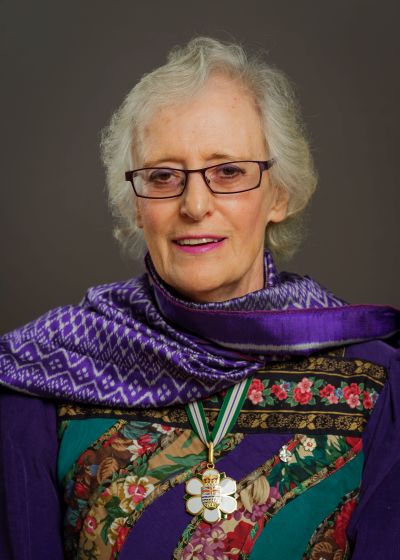
- Year: 2017
- City: Sooke
- Region: Vancouver Island/Coast
- Category: Arts and Culture
Dr. Djavad Mowafaghian
Dr. Djavad Mowafaghian has a long history of philanthropic giving, making a tremendous positive impact on the lives of children and families in British Columbia and around the world.
After moving to our province in 1986, Dr. Mowafaghian founded V1500 Holdings, a B.C. real estate investment and development company. Highly successful in business, Dr. Mowafaghian has given back to his adopted country and the larger world through 25 years of generous donations.
In 2003, he created and funded the Djavad Mowafaghian Foundation to ensure the continuation of his philanthropy. Recently, he moved all of V1500 Holding Inc.'s building assets into the Foundation, demonstrating his selfless nature.
Dr. Mowafaghian has given more than $45 million to health and education in B.C., including a $6 million contribution to BC Children's Hospital Foundation – the largest donation ever made to the hospital by an individual. He has also supported other major initiatives at the hospital, including a $4 million pledge in support of the campaign to build a new BC Children's Hospital.
Among his many other donations, Dr. Mowafaghian has supported the Centre for Child Development Foundation, Free the Children, Surrey Fire Fighters Charitable Society, Coast Mental Health, Junior Achievement of BC, Canadian Breast Cancer Foundation and Arts Umbrella. He has made major gifts to Simon Fraser University and the University of B.C.
Most recently, he provided a substantial gift to support the construction of the new UBC Brain Health Centre.
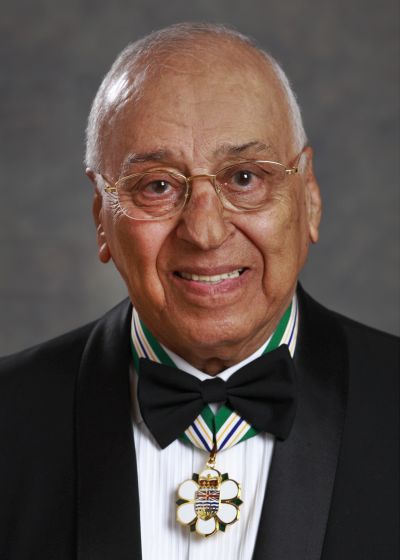
- Year: 2012
- City: North Vancouver
- Region: Mainland/Southwest
- Category: Community Leadership
Dr. Phil Muir
Dr. Phil Muir has served a rural, underserved, largely First Nation community through more than 40 years of encouraging health and wellness.
Dr. Muir has been the anchor of medical practice in the northwest B.C. community of Hazelton, helping to attract and retain a team of physicians to provide a full range of services, and to develop a new hospital. He has been hospital administrator, clinic administrator, chief of staff and head of clinic, often doubling up on these jobs.
The Hazelton medical group was one of the first B.C. clinics to train family practice residents in a rural area, leading to the development of the Northern Medical Program at University of Northern BC.
Dr. Muir spearheaded an addictions and rehabilitation program, was instrumental in the development of an assisted living facility, and heads up the maintenance of a community garden on the hospital grounds. He provided leadership in advocating for and then helping lead the operation of a children's rehabilitation home where discharged patients received follow-up, and helped create Skeena Bakery, a sheltered employment bakery.
Dr. Muir served on the board of the local ice arena, and with his church invited a Vietnamese refugee family to settle in Hazelton. Now retired, he continues to serve the Hazelton community.
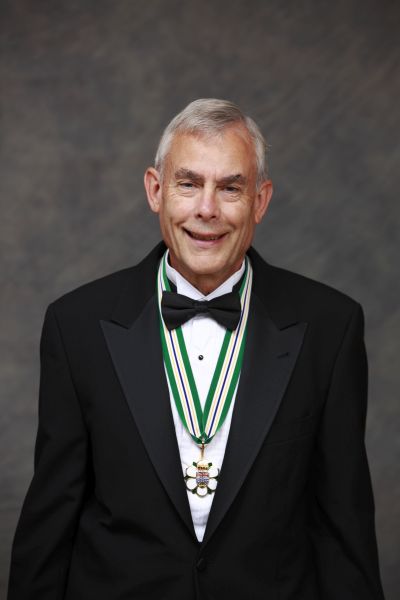
- Year: 2011
- City: Hazelton
- Region: Northern B.C.
- Category: Community Leadership
Colin James Munn
Colin Munn, known professionally as Colin James, is one of the most respected and celebrated musicians of our time. Since his explosive debut with the 1988 self-titled album, the fastest-selling release in Canadian history, Colin has been renowned for his guitar mastery, electrifying performances and artistic vision.
A homegrown hero, he has released 20 studio albums, many of which have achieved gold and platinum status, and charted numerous singles, including the 1990 hit "Just Came Back," which reached #3 on the US Billboard charts. With eight Juno Awards and an unprecedented 31 Maple Blues Awards, both his 2013 induction into the Canadian Music Industry Hall of Fame and his 2019 induction into to the B.C. Entertainment Hall of Fame was well-deserved.
Mentored by the legendary Stevie Ray Vaughan, Colin's collaborations span a Who’s Who of the music world, including Bonnie Raitt, Mavis Staples, Lucinda Williams, Charlie Musslewhite, Keith Richards, and Buddy Guy. Despite his enduring success, Colin remains as dynamic as ever, with his 2016 album "Blue Highways" and 2018’s "Miles to Go" and “Open Road” all topping the blues charts.
Colin’s contributions extend beyond music; he’s a supportive mentor, committed family man and a champion for his community and province. One of the most effective initiatives was his teaming up with Bryan Adams in 2003 for a series of shows to aid those who suffered loss in the Kelowna wildfires. He is also consistently a part of benefits within the arts community for those who need help with dire medical situations. Colin was a big part of the Commodore “Spirit of John” concerts on behalf of Spirit of the West’s John Mann — benefiting Alzheimer’s research and John’s palliative care.
Whether through his music or community service, Colin exemplifies excellence and generosity, making a profound impact on the cultural and social fabric of B.C.
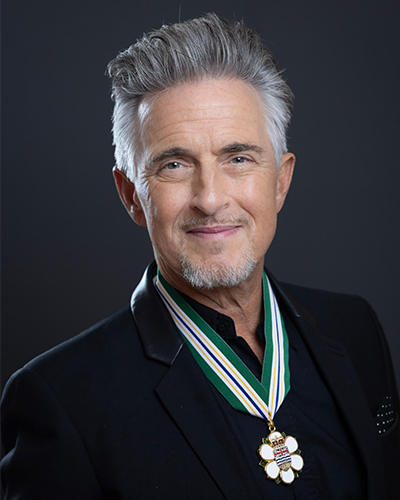
- Year: 2024
- City: North Vancouver
- Region: Mainland/Southwest
- Category: Arts and Culture
Paul Myers
A construction industry leader and founding member of the B.C. Construction Labour Relations Association, Mr. Paul Myers is widely considered an elder statesman for the industry. Throughout his construction industry career he has devoted his energies to the promotion of training and better working conditions for people in the trades and on maintaining labour stability in British Columbia.
Mr. Myers is also a leading philanthropist having made a $25-million donation to the Lions Gate Hospital Foundation, the largest single donation to the hospital's foundation in B.C. history and one which inspired many others to contribute to the replacement of the aging inpatient tower.
He began his career as a plumber and over the course of 60-plus years went on to buy the company he worked for — Keith Plumbing and Heating Co. Ltd.— and grow it from being a residential plumbing contracting business to an enterprise that is one of the largest mechanical contractors in the province. In 1977, Mr. Myers opened an office in Whitehorse, and a little more than a decade later launched Keith Panel Systems Co.
Described as a visionary and compassionate leader who treats his employees with respect, Mr. Myers achieved his entrepreneurial success while raising his four children on his own after his wife suffered from a debilitating illness.
In 1970, Keith Plumbing and Heating Co. Ltd. was one of the founding members of the B.C. Construction Labour Relations Association. At that time, strikes and lockouts involving the 15 unions of the B.C. construction industry were frequent. The association was aimed at bringing stability to the industry, and it was very successful, becoming a model for other provinces.
Mr. Myers served as a board member of the B.C. Construction Labour Relations Association for many years, and also became known as a well-respected negotiator. He is a private person who prefers to work in the background, but his contributions have been recognized with many awards including the 2012\2013 Industry Leaders Award from the Construction Labour Relations Association.
In 2011, the North Vancouver Chamber of Commerce presented him with the Best Business Award for his company's business principles and practices, as well as its training and care of staff. In both 2006 and 2015, Mr. Myers was honoured with the Vancouver Regional Construction Association's Lifetime Achievement award.
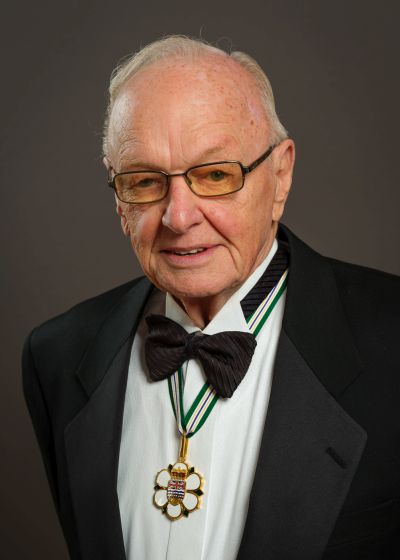
- Year: 2017
- City: West Vancouver
- Region: Mainland/Southwest
- Category: Business
N
Beverly Nann
As a Chinese-Canadian born into a society that did not embrace diversity, Beverly Nann has devoted her life to promoting understanding and mutual respect among ethno-cultural communities.
Before multiculturalism became a buzzword, she helped pioneer, develop and manage organizations dedicated to easing the way for immigrants.
She is active in many cultural and educational Asian societies, and created a festival that contributes to community building between Asians and non-Asians in B.C.
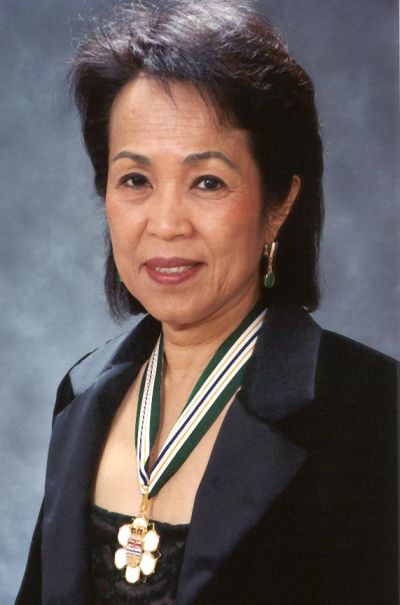
- Year: 2001
- City: Burnaby
- Region: Mainland/Southwest
- Category: Community Leadership

- Year: 2006
- City: Victoria & Arizona
- Region: Out of Province
- Category: Sports and Recreation
Honourable Nathaniel T. Nemetz
Nathan Nemetz served British Columbia with dedication and distinction as a mediator, arbitrator and judicial administrator. His steadfast performance, his strong intellect and social sensitivity improved the effectiveness of the judicial system and raised the profile of the courts as a central institution of our democratic society.
Mr. Nemetz was born in Winnipeg in 1913. He received a degree from the University of British Columbia. He was made a Justice of the Supreme Court of B.C. in 1963 and a Justice of the Court of Appeal in 1968.
In 1973, he became Chief Justice of the Supreme Court of British Columbia and was also elected an executive member of the Canadian Judicial Council in that year. From 1985 to 1988, he served as vice-chairman of the Council. In 1979, he was appointed Chief Justice of British Columbia, a position he held until 1988.
Mr. Nemetz wrote several books dealing with alternative dispute resolution, appellate advocacy, the independence of the judiciary, the position of the media in the legal system, and labour law.
Mr. Nemetz actively supported his alma mater, the University of British Columbia, serving as a member of its Senate and Board of Governors, as board chairman, Chancellor and then Chancellor Emeritus. His stature and contribution have been recognized by many: Nelson's Notre Dame University, the University of British Columbia, Simon Fraser University and the University of Victoria have all bestowed honorary degrees on him.
In 1967, he received the Canada Medal and in 1988, he was made a Freeman of the City of Vancouver. He is a Companion of the Order of Canada. Nathan Nemetz placed an indelible stamp on the judicial system of British Columbia through his distinguished service.
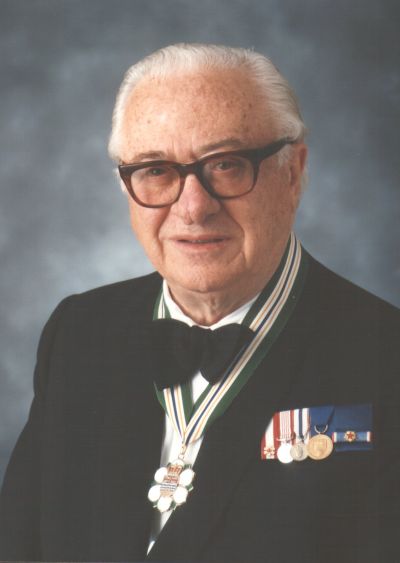
- Year: 1990
- City: Vancouver
- Region: Mainland/Southwest
- Category: Public Service
Dr. Peter James Newbery
Dr. Peter Newbery has lived in northern B.C. since 1978. He has pioneered special skills education for those family physicians requiring special skills for their rural practices. His competent leadership in helping to create a system of support for practising rural doctors, and for training new doctors, has resulted in improved health for thousands of people across rural B.C. and Canada. He has also been very active in recruiting health care professionals, and to date he and his staff have located and placed more than 450 locum physicians, 30 long term physicians, five dentists, five permanent and 20 temporary outpost nurses, and numerous hospital nurses, administrators, physiotherapists, pharmacists, and others to serve in rural and isolated communities. To travel to these remote communities, Dr. Newbery has personally flown some 700 hours in aircraft he owned, borrowed, or leased in the past 12 years.
Dr. Newbery is a family physician, a clinical professor of medicine at UBC, a United Church minister, and holds a commercial pilot's licence and until 2001 was the Director of the United Church Health Services, which operates five hospitals, eight medical clinics, and employs hundreds of health care workers.
Dr. Newbery has taught medical students and family physicians, been a board member and president of provincial, national medical associations, a member of provincial and national task forces on rural health. He has spoken on the subject he is passionate about, rural medicine and life-long learning for family practice physicians, at numerous national and international conferences. He belongs to an international group of rural doctors developing training in rural family medicine worldwide. The group's recommendations for rural training have become part of the accepted guidelines of all medical schools in Canada and many other countries.
Dr. Newbery is a man who exemplifies integrity, openness, compassion and creative leadership in a way that has inspired health care workers throughout this province and much of Canada. He is an honorary member of the B.C. College of Physicians and Surgeons, has been awarded a fellowship in the College of Family Physicians of Canada, awarded the UBC Faculty of Medicine Golden Jubilee Medal, as well as a Doctor of Divinity from the Vancouver School of Theology. He is a recipient of the Queen's Golden Jubilee medal and in 2002, he was appointed to the Order of Canada.
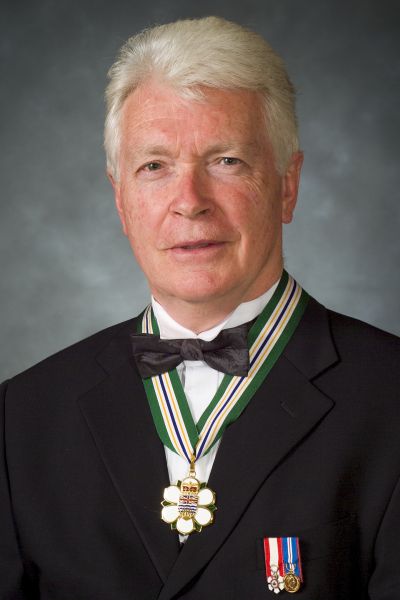
- Year: 2004
- City: Hazelton
- Region: Northern B.C.
- Category: Professions and other occupations
Carey Newman (Ha-yalth-kingeme)
Carey Newman (Ha-yalth-kingeme) is an Indigenous artist, master carver, singer, volunteer, and well-known speaker about the spirit of reconciliation. He created the Witness Blanket, a powerful monument to the impact of the residential school era and the healing journey of First Nations.
At a 2012 hearing of the Truth and Reconciliation Commission, Newman heard his father share his painful experience at a residential school. Hearing his father's story changed Newman's life. He set out to build a monument to recognize the atrocities of the residential school era and honour the children who were affected.
Inspired by a woven blanket, Newman created a large art installation made of hundreds of items reclaimed from residential schools, churches, government buildings, friendship centres, band offices, treatment centres and universities across Canada. The structure's fragments represent fragmented cultures, crumbling buildings, segments of language, and diminished pride – connected by the common experience that created them. The structure will recount for future generations the story of loss, strength, reconciliation and pride. Newman's two-metre by 13-meter Witness Blanket has been seen by more than 100,000 people in Canada.
Newman is a sought-after speaker and has travelled across Canada to talk to community groups, schools and the media about the Witness Blanket project and the spirit of Reconciliation. He is a master carver, following in the footsteps of his great great grandfather, father and great aunt – all renowned wood carvers. Newman was selected as the master carver of the Cowichan 2008 Spirit Pole, a journey that saw him travel across British Columbia sharing the experience of carving a 20-foot totem. He created the “Dancing Wind” installation for the 2010 Olympic Games in Vancouver.
Newman studied piano at the University of Victoria and voice at the Victoria Conservatory of Music. He has won several awards in both piano and voice, and he has performed with the Pacific Opera in Victoria. He sang at the Indspire National Aboriginal Achievement Awards and through his role as a Pacific Opera Victoria board member, was part of developing and bringing to stage, the opera Missing which honoured murdered and missing Indigenous women.
He has received the Governor General's Meritorious Service Medal, the 7th Generation Club Award, the Muscrat Magazine Indigenous Hero Award, and the Sooke Fine Arts Show Award. He has also been given one of the highest forces of recognition by high-ranking chiefs and traditional leaders: the hereditary name of Ha-yalth-kingeme. It honours Newman's contributions to society and his commitment to reconciliation and the bringing of Indigenous and non-Indigenous people together.
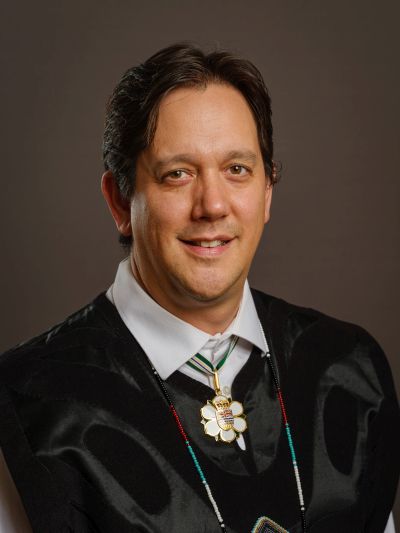
- Year: 2018
- City: Victoria
- Region: Vancouver Island/Coast
- Category: Arts and Culture
Dr. Murray A. Newman *
Dr. Murray Newman was a leader of great vision and dedication for the citizens of British Columbia. He was the founding director of the Vancouver Public Aquarium, where he served as director for 37 years. During his tenure, he built the Aquarium into one of the most prestigious marine facilities in the world, without the assistance of public subsidies. The Aquarium became not only a major tourist attraction, but also an important educational centre for students, starting as a small park facility, and culminating as the large, multi-faceted Vancouver Public Aquarium.
Dr. Newman made major contributions to the prestige of the province by building a marine institution that will continue to provide leadership and world recognition for British Columbia. His vision for the format and design of the aquarium, and his perception of the need for research and conservation, made the Vancouver Aquarium into a world-class centre, whose format is now imitated by other aquariums worldwide.
Due to Dr. Newman's dedication and effort throughout his career, the Vancouver Aquarium has drawn over 33 million visitors since 1956. After his retirement in 1993, the Murray Newman Awards for Excellence in Conservation and Research were established. He remained Director Emeritus of the Vancouver Aquarium.
Dr. Newman received the Order of Canada in 1979, and the Canadian Centennial Medal in 1967. He has been featured in the Canadian Who's Who, and Who's Who in America.
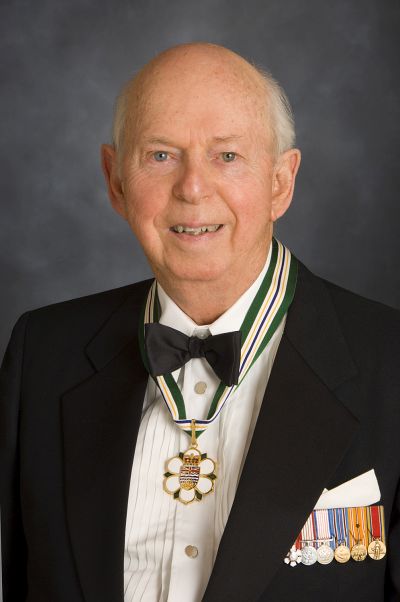
- Year: 2006
- City: West Vancouver
- Region: Mainland/Southwest
- Category: Public Service
Grace Elliott Nielsen
As president of the B.C. Association of Aboriginal Friendship Centres, Grace Nielsen has been a tireless advocate of self-determination for aboriginal peoples and communities across B.C.
A prominent member of the Chemainus First Nations, she is an outstanding example of what can be done when someone has a passion for life and a concern for future generations. She has lectured nationally and locally on issues of human rights, aboriginal history, spirituality, holistic health and aboriginal identity.
Her outstanding record of community development as executive director of Tillicum Haus Friendship Centre has put the Nanaimo community at the forefront of innovation in the delivery of aboriginal health and social services in Canada. She is responsible for many firsts in Nanaimo, including creation of the first aboriginal health clinic in B.C., development of the first aboriginal controlled family violence program, and establishment of the first adult basic education program in B.C. Aboriginal people from near and far have come to Tillicum Haus for education, healing and training and have found a place where they can tap into a wide variety of programs that meet their physical mental, emotional and spiritual needs.
In 1999, she was honoured by Malaspina University-College with an Honorary Doctor of Laws. Grace Nielsen is a visionary and courageous leader who promotes justice, fairness and equality.
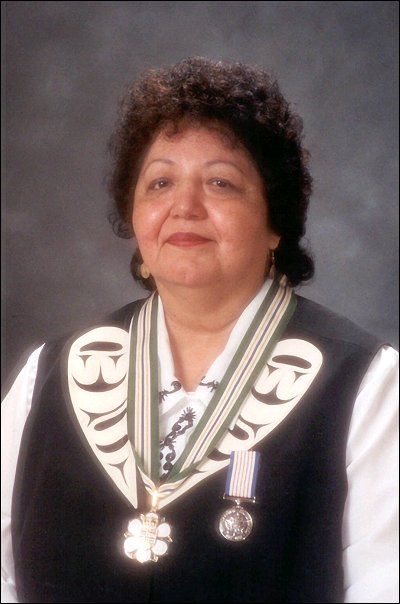
- Year: 2000
- City: Nanaimo
- Region: Vancouver Island/Coast
- Category: Community Leadership
Saleema Noon
Saleema Noon is British Columbia's preeminent sexual health educator and a tireless advocate for empowerment education.
Thousands of children, teens and adults throughout British Columbia have attended her comprehensive “body science” workshops, tailored to reflect her firm belief that every person – regardless of race, religion, age, ability, gender identity, gender expression, or sexual attraction – deserves respect. She arms young children with knowledge and skills to keep their bodies safe and empowers parents to share positive, meaningful messages about sexuality with their children at every age.
Saleema also co-created BC's first empowerment workshop for pre-teen girls, Go Girl! in 1999, which became iGirl, tackling topics such as body image, media literacy, gender stereotypes, internet safety, consent, healthy relationships and assertiveness skills. iGuy, launched in 2014, challenges society's definition of masculinity to help boys have healthy relationships, express their emotions, and make smart decisions online.
Saleema's recently created Saleema Noon Empowerment Foundation aims to sponsor body science, iGirl and iGuy workshops at more schools. Committed to the growth and success of others in the field, she has voluntarily trained, mentored and inspired dozens.
Saleema co-authored the book Talk Sex Today released in summer 2016.
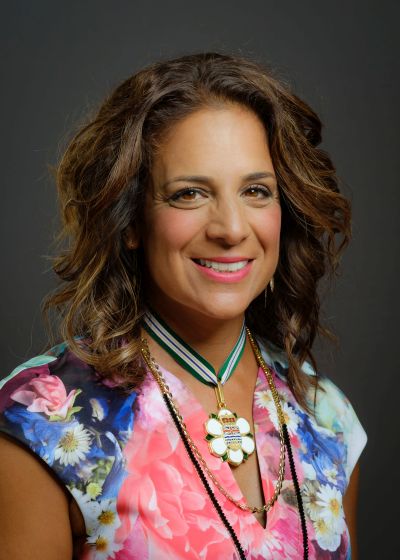
- Year: 2016
- City: Vancouver
- Region: Mainland/Southwest
- Category: Community Leadership
Rudolph North
Rudolph North is a philanthropist, a humanitarian, and a business leader who has used his success and leadership skills to better his community.
A third-generation Vancouverite and a founding partner of Phillips, Hager & North Investment Management, Rudy North has combined business success with social responsibility to support many initiatives, including environmental research and habitat conservation.
He established the North Growth Foundation to keep British Columbia a spectacularly desirable place to live. Through the foundation, Mr. North has supported BC's universities and charities as big as the United Way, and as small as Mount Pleasant Neighbourhood house.
Rudy North has made meaningful donations in support of programs for children and youth, and to charitable organizations such as the Djavad Mowfaghian Centre for Brain Health at UBC and BC Children's Hospital, as well as to leading researchers in various fields. He helped establish Science World and was an early supporter of the Morris J. Wosk Centre for Dialogue at SFU.
His lifelong passion for our province's natural environment inspired him to work with many of BC's forward thinking environmental organizations. Mr. North contributed $1 million each toward a new research facility at Vancouver Aquarium, the conservation of the Great Bear Rain Forest and the Rivers Institute at BCIT.
Mr. North is a member of the Order of Canada. He has been honoured by the United Way and by Simon Fraser University, which awarded him an honorary Doctorate of Law and the Chancellor's Distinguished Service Award.
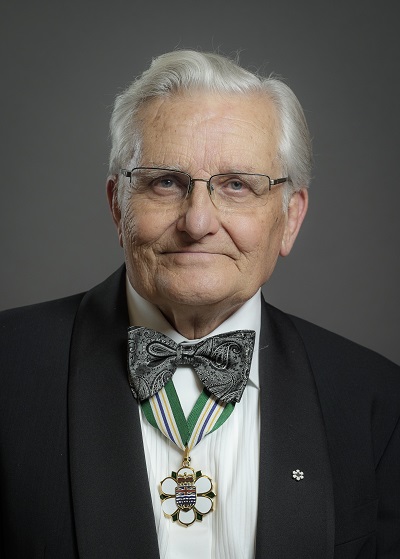
- Year: 2014
- City: Vancouver
- Region: Mainland/Southwest
- Category: Community Leadership
R. T. (Phil) Nuytten *
Phil Nuytten was a businessman, sub-sea engineer, diver, marine archeologist, author, carver, and Native advocate.
He was born in Vancouver and lived there all his life. He began his business career right out of high school by opening a SCUBA store in 1958. Eight years later, he founded Can-Dive Service Ltd.
As an acknowledged expert in underwater technology and enterprise, Phil Nuytten helped put British Columbia on the map as a centre of high-tech underwater development.
His internationally acclaimed “Newt Suit” – often called the submarine you can wear – gave divers a way to work underwater longer without fear of “the bends.”
As an author, carver, and Native advocate, Phil Nuytten was devoted to Northwest Coast Native art and culture. He carved totem poles, masks, jewelry, and full-size canoes.
In his book The Totem Carvers, Phil Nuytten documented the lives of three prominent “Kwakwaka’wakw” carvers and their role in preserving traditional totemic art.
He promoted recognition and marketing of the art of British Columbia's First Peoples and maintained an ongoing program of repatriating artistic pieces of significant historical importance and donating them to museums in the province.
The “Kwakwaka’wakw” gave him the name Tlaxan, which means Red Snapper.
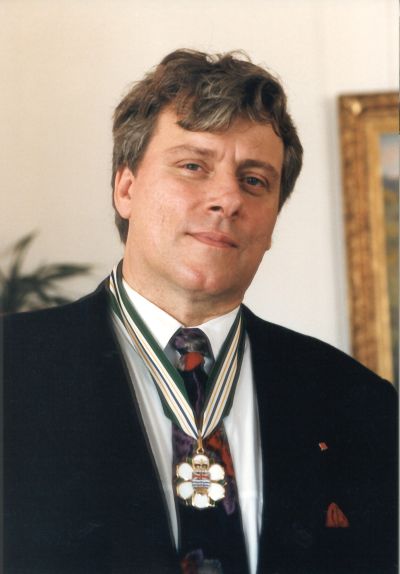
- Year: 1992
- City: North Vancouver
- Region: Mainland/Southwest
- Category: Arts and Culture
O
Cornelia Hahn Oberlander *
Cornelia Hahn Oberlander, recognized as one of the world's leading landscape architects, was known for her research, creativity, artistry, innovation, risk-taking and recognition of the importance of the preservation of the environment.
Cornelia was among the first class of women to graduate from the Harvard Graduate School of Design with a degree in landscape architecture and, from the beginning of her career, placed a high value on collaboration with allied professionals, education, and mentoring young landscape architecture graduates.
She worked in collaboration with some of the world's most renowned architects, such as Arthur Erickson and Moshe Safdie. Many public spaces around the world reveal her influences. Her design for the play area at the Children's Creative Centre at Expo 67 in Montreal changed the way that the public thought about children's play and playgrounds.
Cornelia pioneered respectful references to the landscapes of First Nations People as seen at the UBC Museum of Anthropology. Her green roof design of the Visitor's Centre at the VanDusen Botanical Garden answers to the issues of climate change, environmental responsibility and the Living Building Challenge.
Cornelia received many honorary degrees, the Order of Canada, several lifetime achievement awards, honorary memberships, medals and fellowships in Canada and abroad.
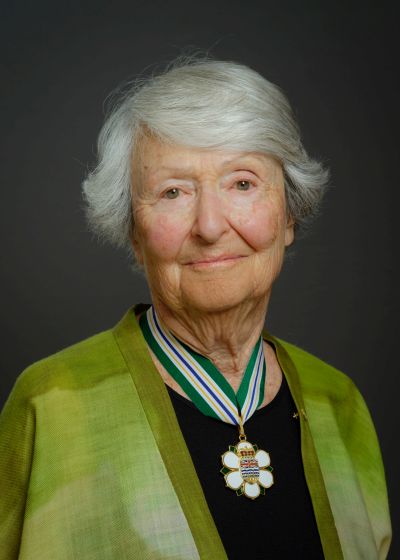
- Year: 2016
- City: Vancouver
- Region: Mainland/Southwest
- Category: Environmental
Daphne Odjig *
Daphne Odjig is one of Canada's most celebrated and distinctive painters. She was a self-taught artist who began her artistic career in her youth, and had the talent – and tenacity – to represent history from the viewpoint of an aboriginal heritage.
Ms. Odjig's vivid paintings are in every major collection in Canada, as well as collections in the United States and throughout Europe. The National Gallery has taken over the lead on preparation of catalogue for a retrospective of Ms. Odjig's paintings. The show will open in Sudbury because it is the closest gallery to Manitoulin Island where she grew up. A National Gallery organizing tour will follow.
In 2005, the Kamloops Art Gallery organized an exhibition of her art called ‘Daphne Odjig: Four Decades of Prints,' which is touring to major galleries across Canada, and was photographed for publication about her art. She received the Governor General's Award in Visual and Media Arts in March 2007.
Ms. Odjig, who lived in British Columbia for more than half of her life, was recognized nationally with the Order of Canada, the Aboriginal Achievement Award, and four honourary doctorates from Canadian universities. Ms. Odjig received her 5th honourary doctorate on June 8, 2007 from Thompson Rivers University in Kamloops.
Through her many successes, Ms. Odjig continued to serve as an inspiration and role model for young First Nations people and moved to British Columbia in 1945.
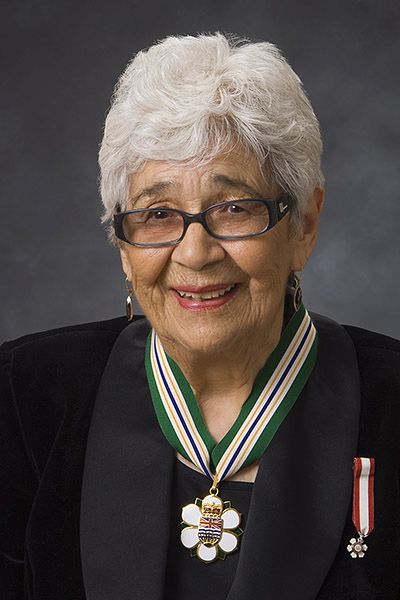
- Year: 2007
- City: Penticton
- Region: Thompson/Okanagan
- Category: Arts and Culture
James Ogilvie *
Mr. Jim Ogilvie dedicated most of his life to community service in the Kimberley area.
First elected to public office in 1965, Mr. Ogilvie was one of Kimberley's original Aldermen, a position he held until his 1972 election as Mayor. With a break of only three years, he continued in that position, serving 36 years as Mayor.
During this period, Kimberley grew and changed, becoming a tourism and lifestyle centre. In 1986, the City took responsibility for Kimberley Ski Resort and later developed the outstanding Trickle Creek Golf Resort. The City later sold the resorts and other development properties, which led to abundant new development in the city.
Kimberley flourished under Mr. Ogilvie's guidance, with innovative municipal developments such as Bootleg Gap Golf Course, the Rails to Trails project and Kimberley Conference and Athlete Training Centre. He made contributions at the regional and provincial level, serving in leadership positions on the Regional District Board, the executive of the Union of B.C. Municipalities and numerous task forces, commissions, boards and committees.
Mr. Ogilvie was instrumental in guiding Kimberley toward economic independence and continued prosperity, with a sought-after lifestyle, rich with recreational opportunities, beautiful scenery and a healthy, safe environment. Mr. Ogilvie influenced the lives – in a positive way – of everyone lucky enough to call Kimberley home.
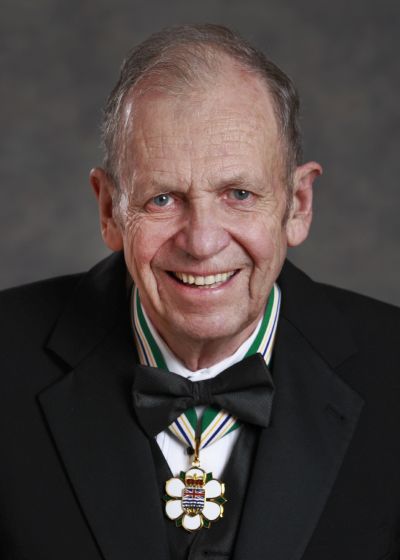
- Year: 2012
- City: Kimberley
- Region: Kootenay
- Category: Community Leadership
Wally Oppal
Retired justice Wally Oppal has dedicated his working life to public service — both as an elected official and in his legal profession. Throughout it, his work has improved public safety and justice, particularly for some of the most vulnerable people in society.
The son of a widowed housekeeper, as a young man Mr. Oppal supported himself through university by working in the lumber industry. After graduating he practised criminal law, primarily as Crown Counsel and then was appointed to Supreme Court of British Columbia in 1985 followed by an appointment to the British Columbia Court of Appeal.
While he sat on the BC Supreme Court bench he was appointed to conduct a commission of inquiry into policing in British Columbia, which led to many reforms including the establishment of an Office of a Public Complaint Commissioner, guidelines around use of force, high speed chases, use of firearms for police and recommendations for diversity in policing.
In 2005, he was elected to the BC provincial government and appointed Attorney General and Minister responsible for Multiculturalism. Under his leadership there were many significant reforms in the civil and criminal justice systems including the establishment of a Community Court to deal with chronic offenders in the downtown eastside of Vancouver. The rules of the BC Supreme Court were reformed, making alternative dispute resolution mandatory in many cases and helping to speed justice.
After leaving politics, he was appointed commissioner of the Missing Women Commission of Inquiry examining the police response to reports of the disappearance of dozens of women who became victims of serial killer Robert Pickton. His recommendations have had lasting impacts, resulting in a number of legislative changes redefining missing persons and police responses to missing women.
He has been recognized for his achievements and contributions by being appointed Queen's Counsel; honoured with the Georges A. Goyer, Q.C., Distinguished Service Award; Annual Bench Award from the Trial Lawyers Association of British Columbia; Lawyers Assistance Program of B.C., Lawyer Helping Lawyer Award; Anthony P. Pantages, Q.C., Medal for Outstanding Contributions in the Field of Public Safety; South Asian Bar Association, Pioneer Award.
From the University of the Fraser Valley he has his Honorary Doctor of Laws and Honorary Fellow from Douglas College. He is a recipient of the Queen Elizabeth II Golden and Diamond Jubilee Medals.
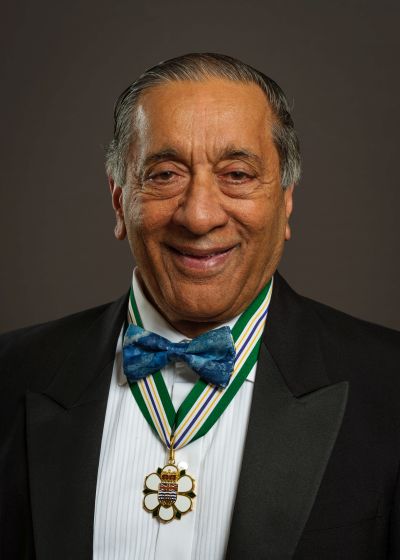
- Year: 2017
- City: Vancouver
- Region: Mainland/Southwest
- Category: Public Service
Dr. Margaret Ormsby *
Dr. Margaret Ormsby was the dean of British Columbia's historians and a scholar of national distinction.
Born near Quesnel, raised in the Okanagan Valley, educated in the public school system of the province and at the University of British Columbia, she earned her doctorate from Bryn Mawr University, in Pennsylvania.
After teaching in the United States and in Ontario she joined the Department of History at the University of British Columbia in 1943, became Professor of History in 1955, and Head of the Department in 1964. She continued in that position until her retirement in 1974.
As an historian she is most widely known as the author of British Columbia: A History, published in 1958 to commemorate the centenary of the province, and is the author of many articles published in an impressive number of scholarly journals.
By her contribution to the Reports of the Okanagan Historical Society, as an editor and a writer, she has shown that local history can achieve the highest scholarly standards.
As a teacher, she stimulated the interest of students in widely varying fields of history and directed the research of many towards broadening and deepening knowledge of many previously untouched aspects of British Columbia's past.
As an academic administrator, she bore the primary responsibility for the growth of the Department of History at UBC and the development of its postgraduate programs.
The union of historical scholarship and love of her native province enabled Margaret Ormsby to interpret British Columbia eloquently as a province within the Canadian nation and also as part of a larger international community.
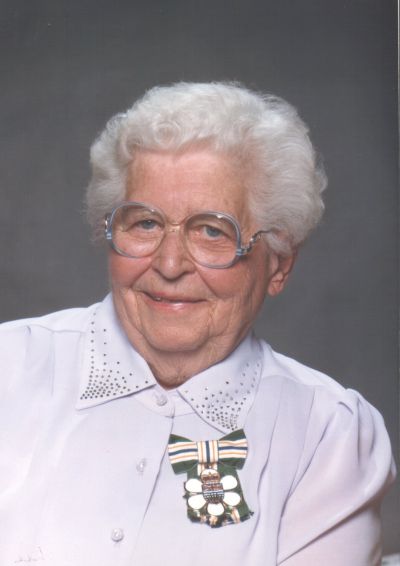
- Year: 1990
- City: Vernon
- Region: Thompson/Okanagan
- Category: Education
James (Jim) C. O'Rourke
For 35 years, Mr. James O'Rourke has been one of British Columbia's leaders in mine evaluation, financing development, marketing and mining.
The many projects Mr. O'Rourke has been connected with have created thousands of jobs and many millions of dollars in tax revenue to support public services in every B.C. community. Through his connections with Japanese mining interests, he has fostered relations with Pacific Rim partners.
Mr. O'Rourke was born in Prince George and is a graduate of the University of BC in mining engineering. He is President and Chief Executive Officer of Copper Mountain Mining Corp., which has recently placed a $440 million open pit copper mine in production near Princeton.
Over the years, Mr. O'Rourke has played a key role in many of B.C.'s premier mining projects, including the Endako mine near Fraser Lake, the Gibraltar mine near Williams Lake, the Huckleberry and Equity Silver mines near Houston, Quinsam Coal on Vancouver Island and, of course, Similco.
Mr. O'Rourke led initiatives to improve public facilities in B.C.'s mining communities, such as swimming pools, curling rinks and arenas. He was a leader in projects such as Mining for Miracles, which raises funds for the BC Children's Hospital, and Fishing for Kids, which raised money for children's charities.
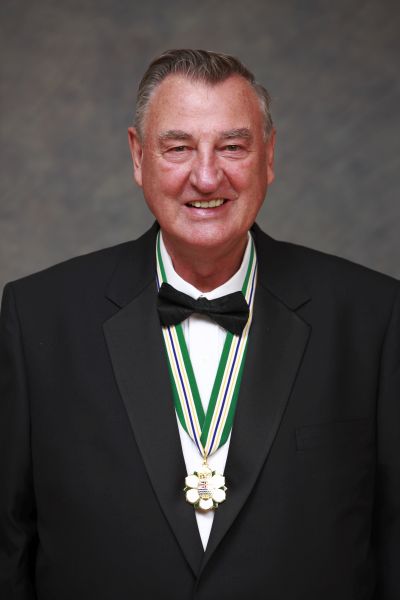
- Year: 2011
- City: West Vancouver
- Region: Mainland/Southwest
- Category: Industry
James Oscar Fitzalan Orr *
During his 101 years, Oscar Orr had a distinguished career as a soldier, lawyer, Magistrate, war—crimes trials prosecutor and good citizen.
Born in Saskatchewan, Oscar Orr lived his early life in Ontario and in 1908 came to New Westminster where he entered Columbia College. He pursued a legal career until the outbreak of war in 1914 at which time he went to France with the Vancouver Regiment, was Commissioned in the field and was severely wounded at Ypres.
After World War I he practiced law and became City Prosecutor for Vancouver in 1931. In 1940, he enlisted in the Army yet again, becoming a Major and Judge Advocate General of Pacific Command. He was later promoted to Lieutenant-Colonel and was posted to Japan where he commanded the Canadian War Crimes Section and was awarded an M.B.E.
In 1947, he was appointed a King's Counsel and, in 1953, became Police Magistrate of Vancouver where he remained until 1962. His sensitivity for the unfortunate is well known to all who practiced before him. He brought kindness, firmness, fairness and dignity to all who appeared before him.
Most everyone who had the opportunity of associating with him were inspired to emulate in their daily lives his integrity, sense of fairness and respectability.
Throughout his life, Mr. Orr practiced quiet philanthropy. His efforts on behalf of soldiers and widows of servicemen, as well as his other charitable endeavours, are not well known, but many have been greatly indebted to him for his efforts. These contributions continued throughout his lifetime.

- Year: 1990
- City:
- Region: Mainland/Southwest
- Category: Other
Karen O'Shannacery
Karen O'Shannacery has dedicated herself for more than four decades as a housing advocate for the homeless and disenfranchised, working to find solutions and provide comfort to people living on Vancouver's downtown eastside.
Ms. O'Shannacery's compassion for those less fortunate has led to the establishment of quality resources and housing. She is a tireless advocate for homeless people, a respected, well-spoken leader and a team player who works across boundaries to achieve change.
Among her many successes, Ms. O'Shannacery has led the development of Lookout Society and its 17 housing projects, including three multi-use buildings, the renovation of two single-room occupancy buildings and the opening of Antoinette Lodge, subsidized housing on the downtown eastside.
She co-founded a provincial Shelter Network and was instrumental in the purchase and renovation of New Westminster's former College Place night club, which now serves as a homeless shelter and transitional housing.
Ms. O'Shannacery has served on many committees, boards and organizations. These include the Greater Vancouver Shelter Strategy committee, the Urban Core Workers Community Association and municipal task forces on homelessness in Burnaby, New Westminster and North Shore. She is a long-standing member of the Metro Vancouver's Regional Steering Committee on Homelessness.
For her continuing contributions, Ms. O'Shannacery has been honoured by many organizations, locally, regionally, provincially and nationally. She acknowledges Lookout's dedicated staff and her loving family for supporting her passion.
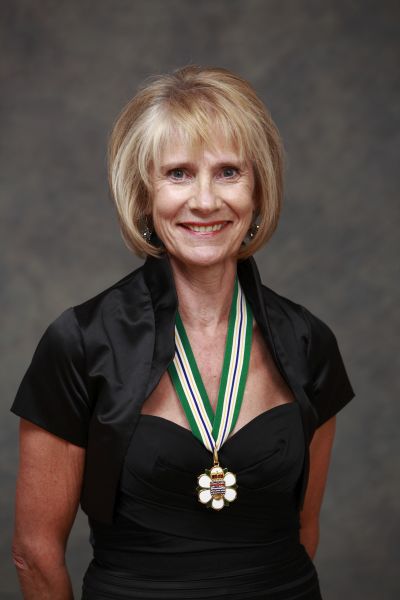
- Year: 2011
- City: Vancouver
- Region: Mainland/Southwest
- Category: Community Leadership
Dr. Michael O'Shaughnessy
Because of people like Michael O'Shaughnessy, British Columbia is acknowledged for its progressive response to HIV/AIDS.
As director of the B.C. Centre for Excellence in HIV/AIDS, he has established an international reputation for his AIDS research, his care of people living with HIV, and his advocacy of human rights. His greatest achievement has been the establishment of the HIV/AIDS Drug Treatment Program, which provides life-saving medications to people living with HIV and AIDS throughout B.C. His leadership helped develop health public health policy and influenced the creation of the National AIDS Strategy, Phase III. He was among the first to realize that the battle against AIDS could be won in the laboratory but lost in the streets. His vision has always encompassed the broadest aspects of the disease — from studying the virus under a microscope to visiting the bedside of a patient with HIV.
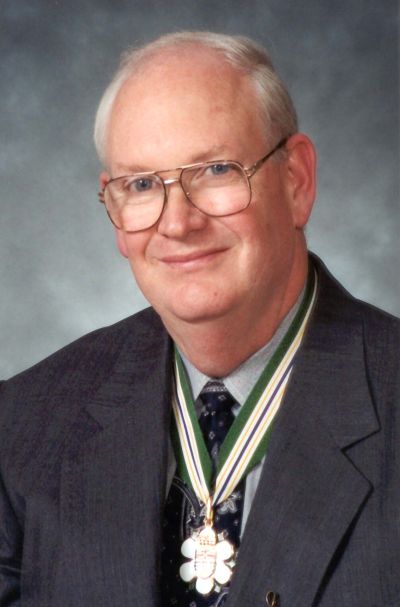
- Year: 1998
- City: Maple Ridge
- Region: Mainland/Southwest
- Category: Science and Technology
* Denotes deceased. The Honours and Awards Secretariat relies on family members to notify us if members have passed.
